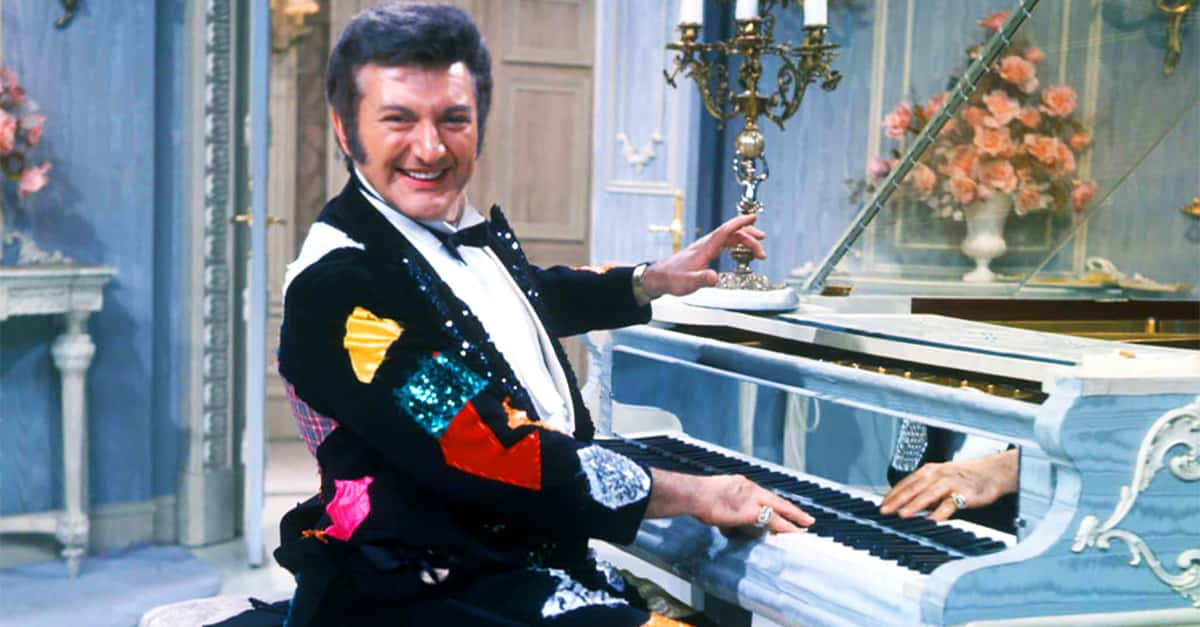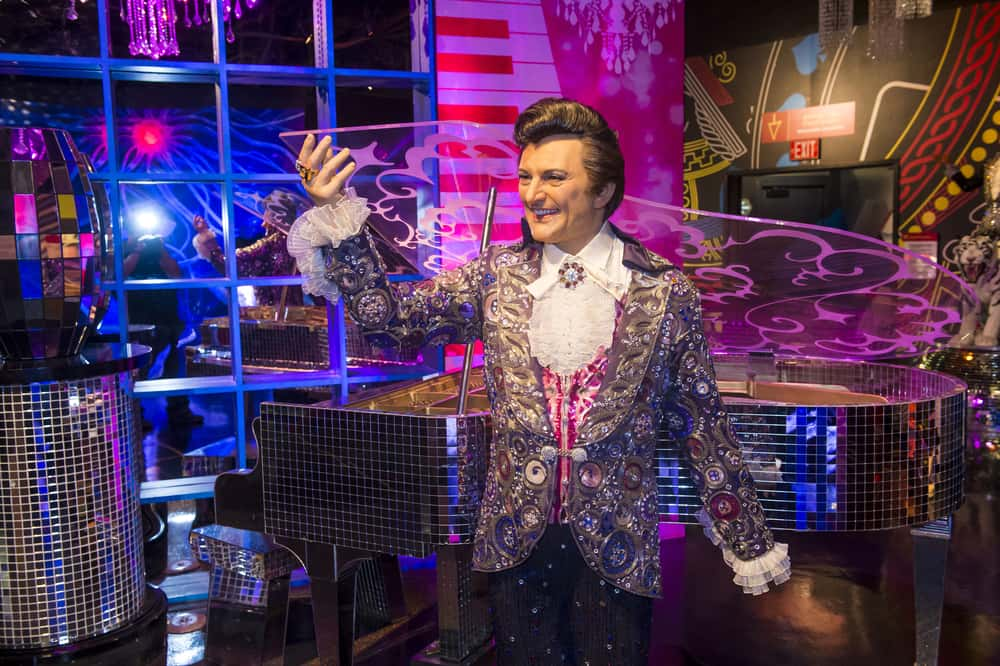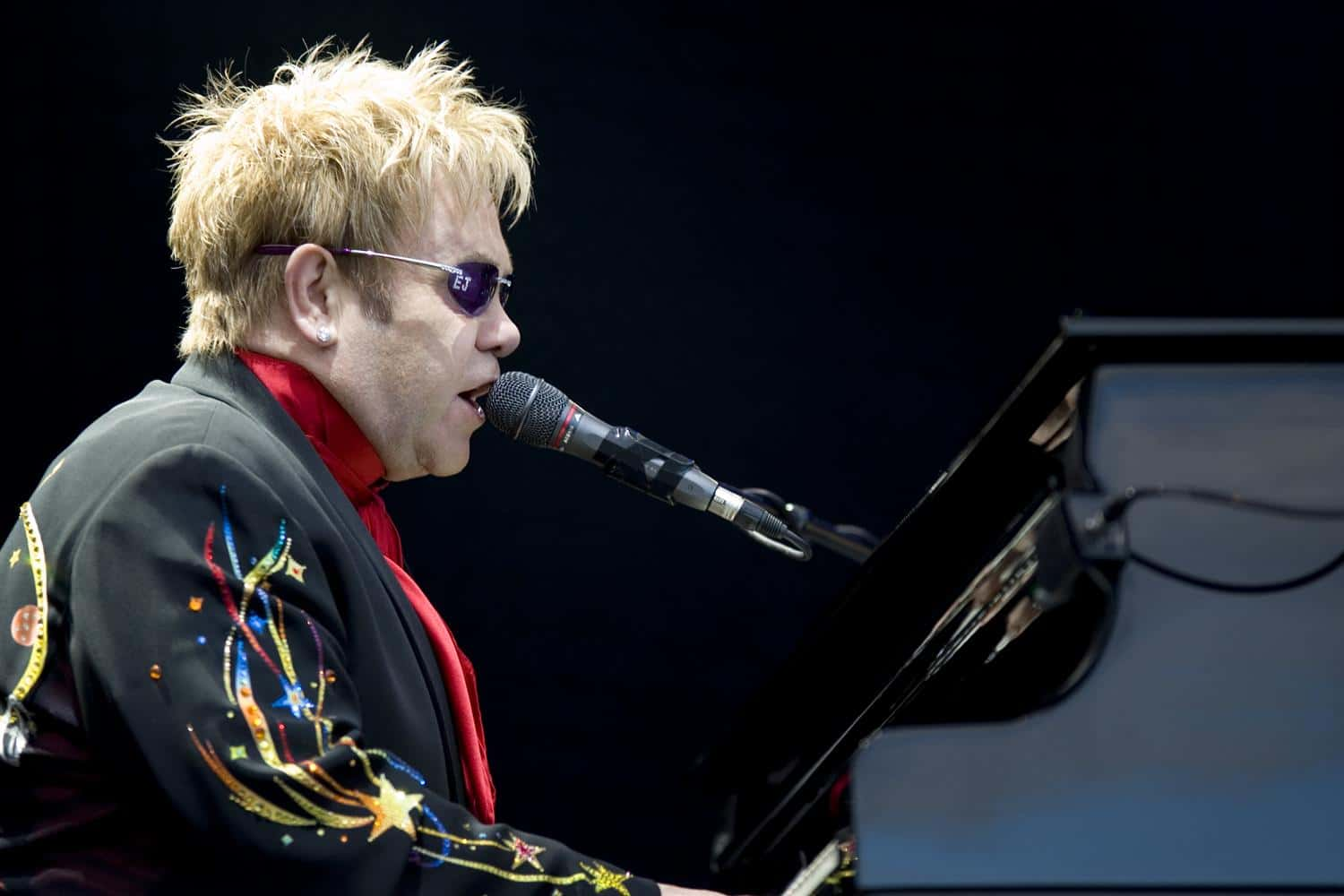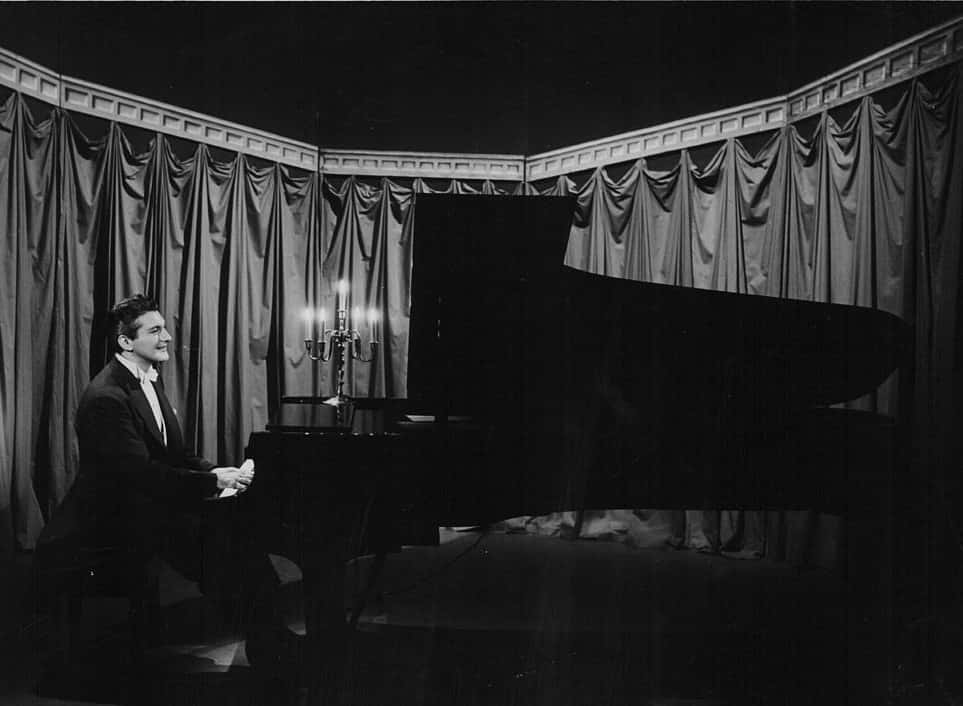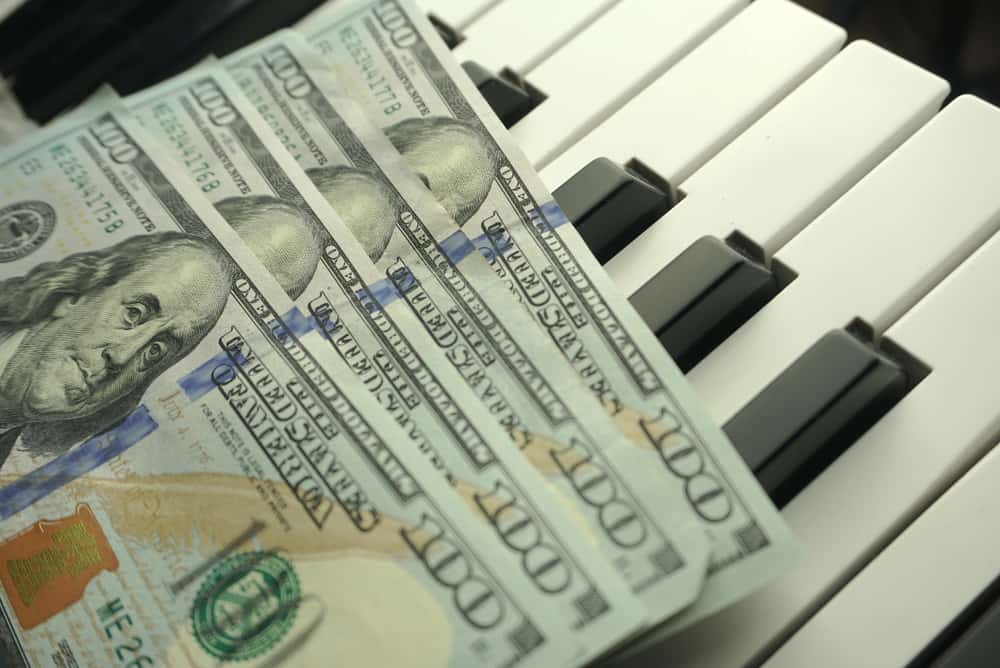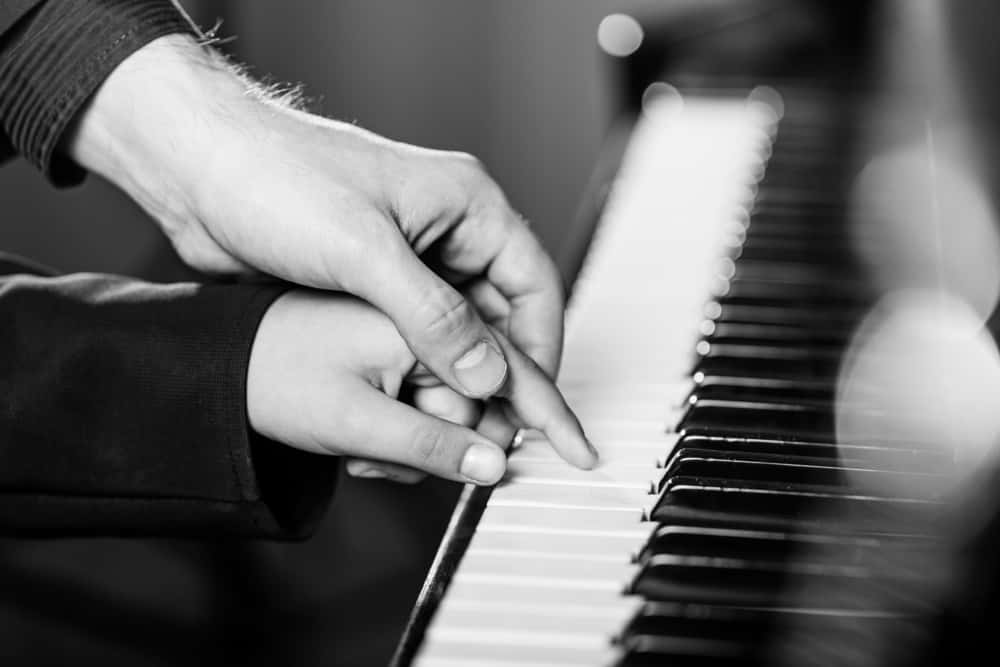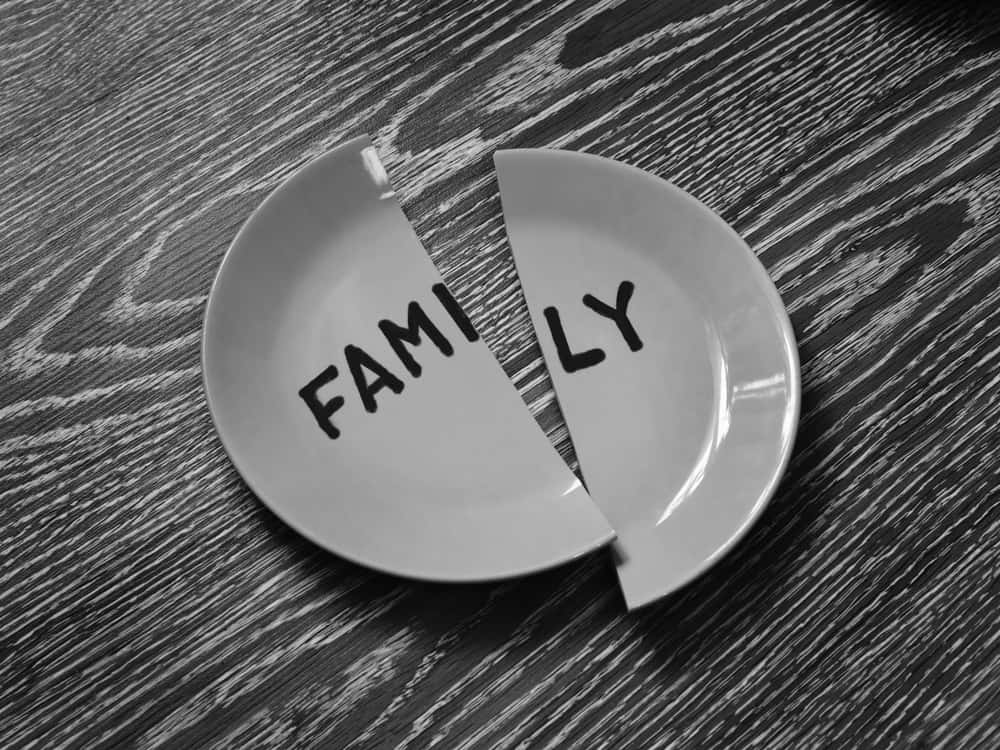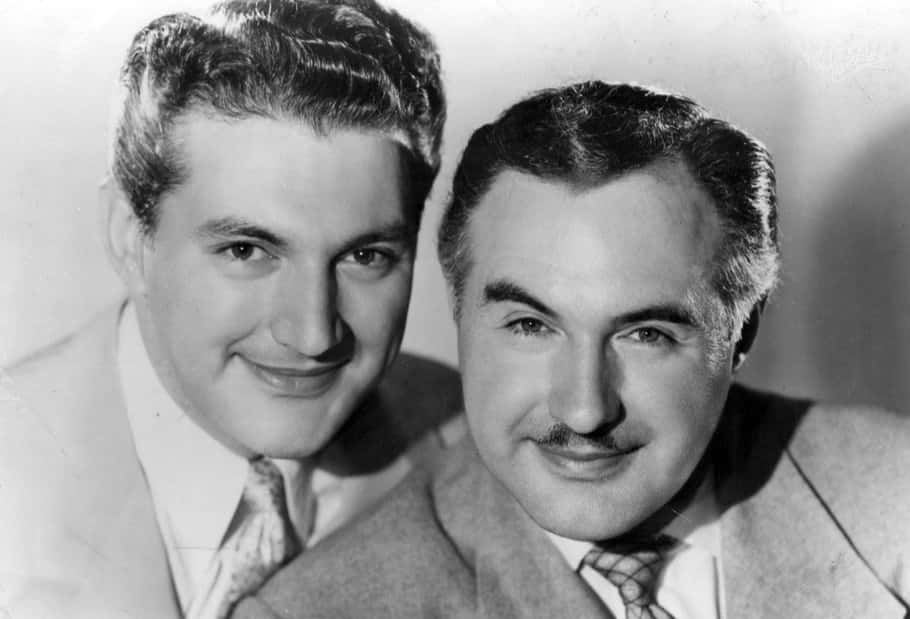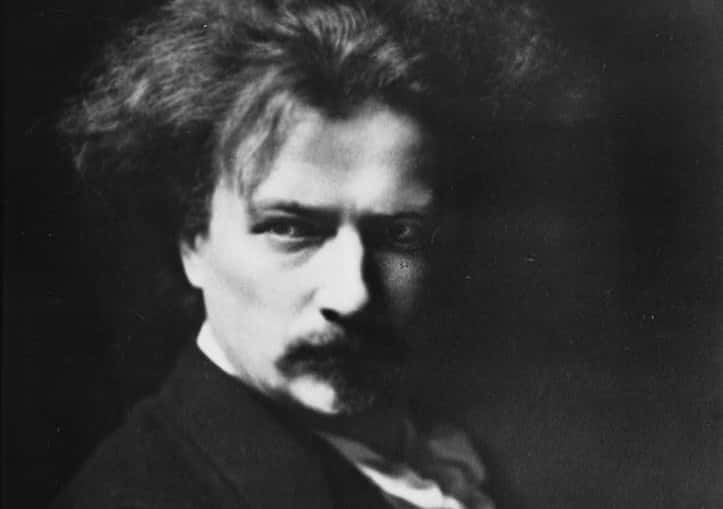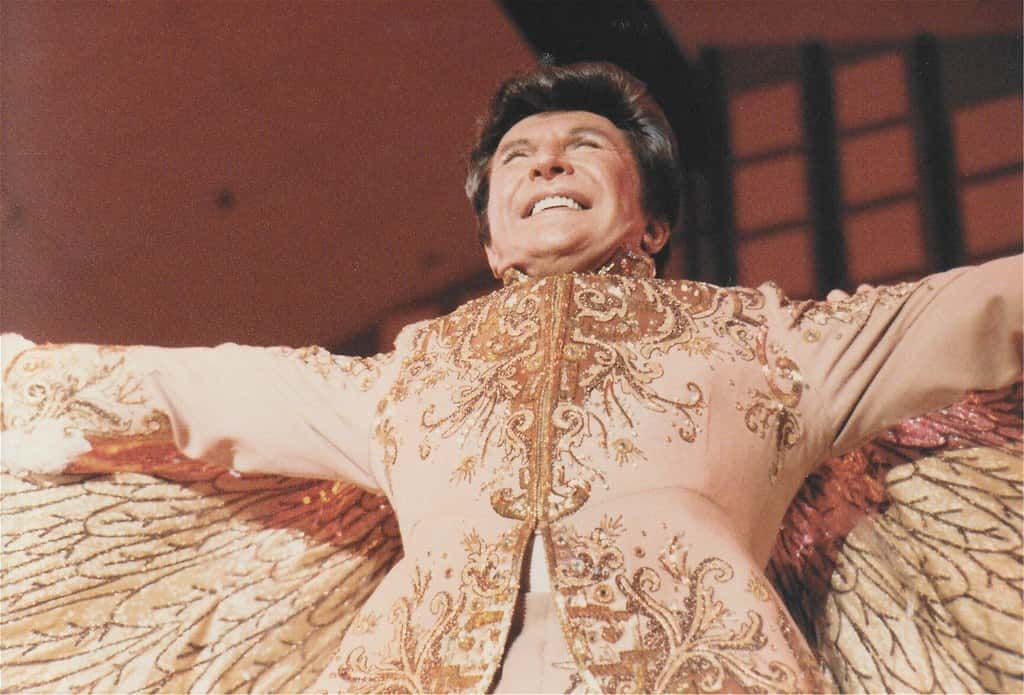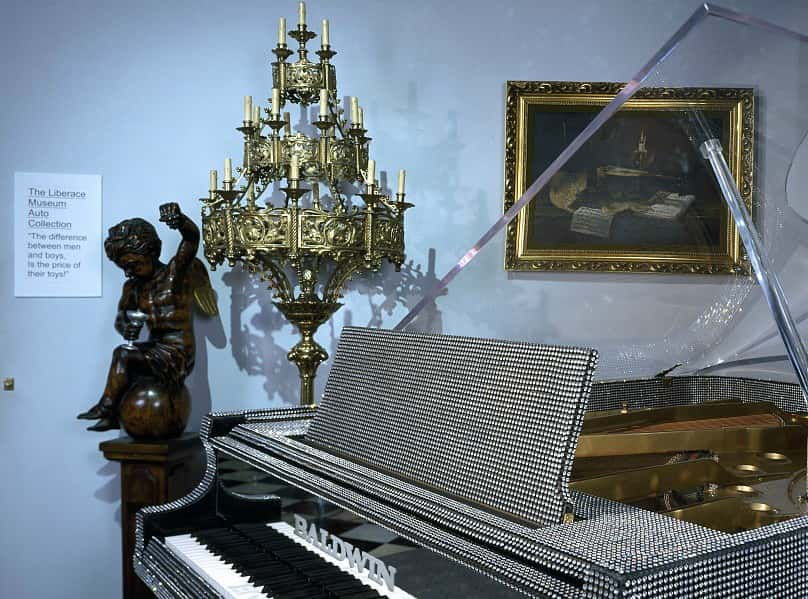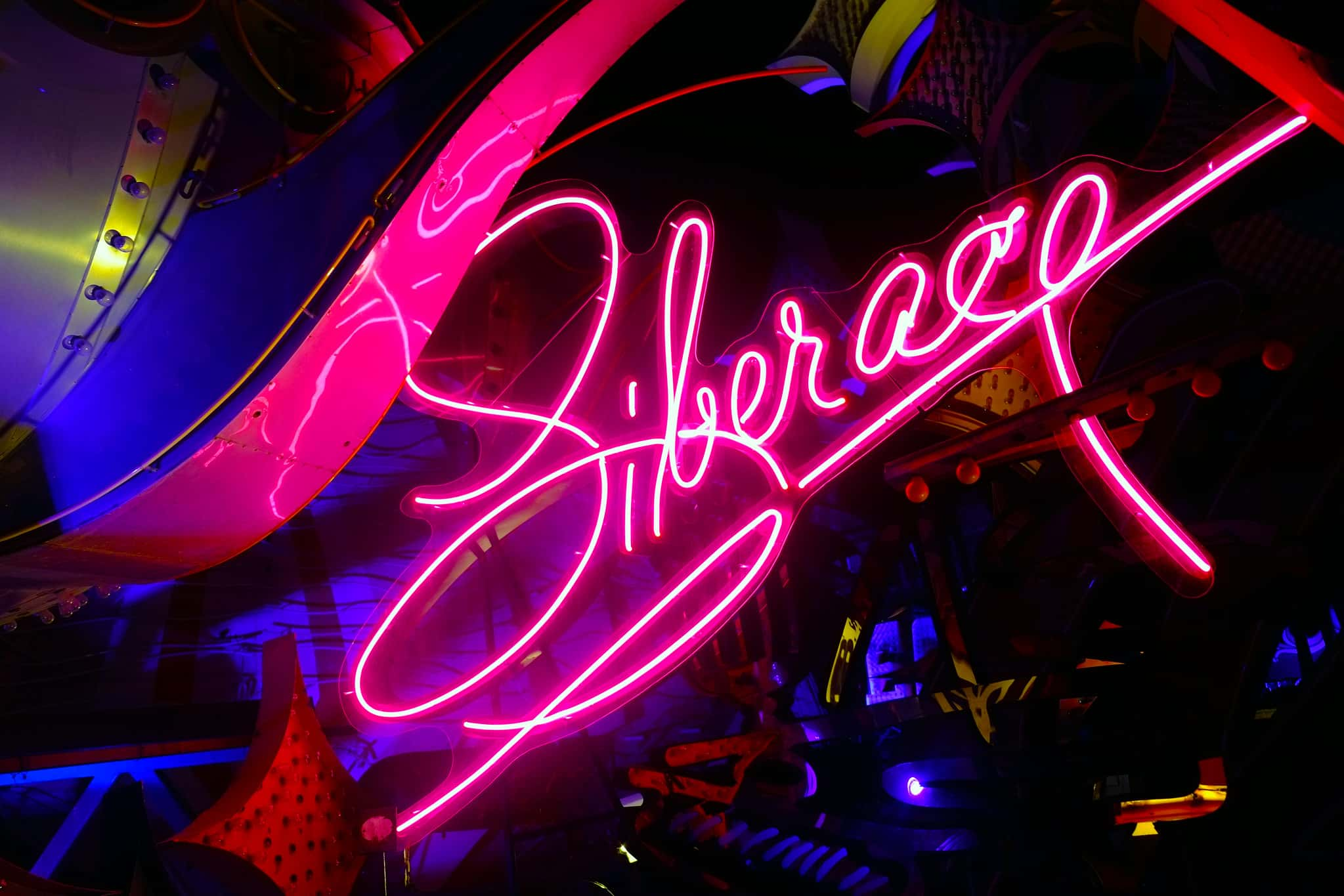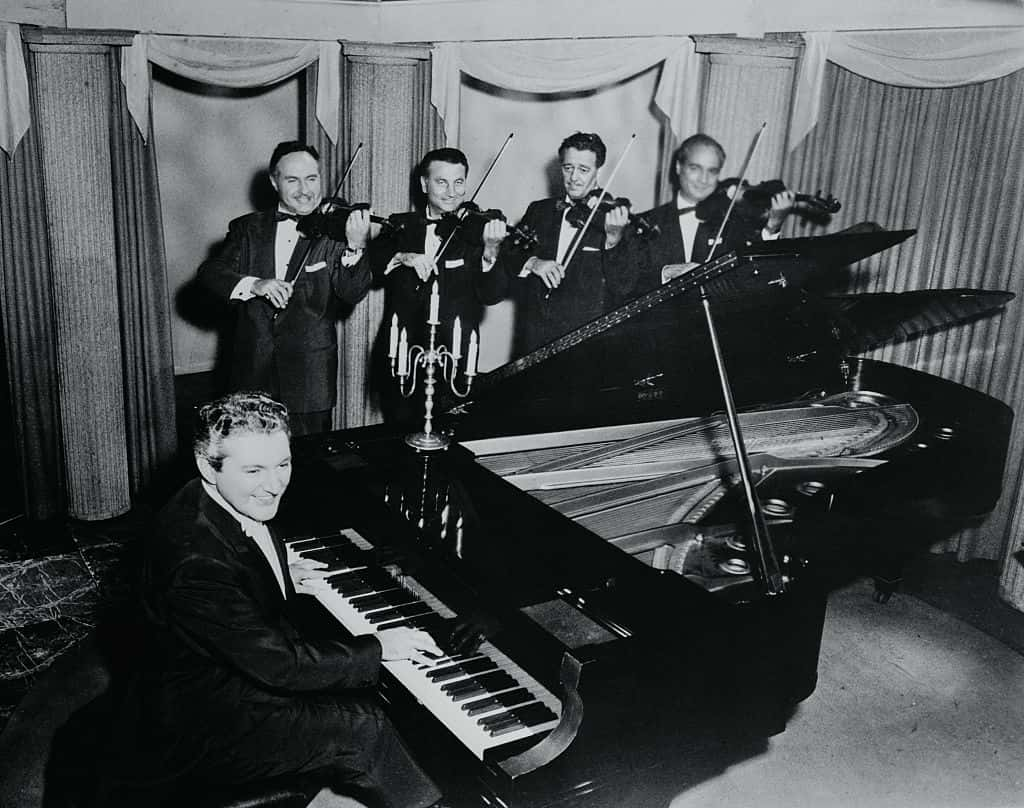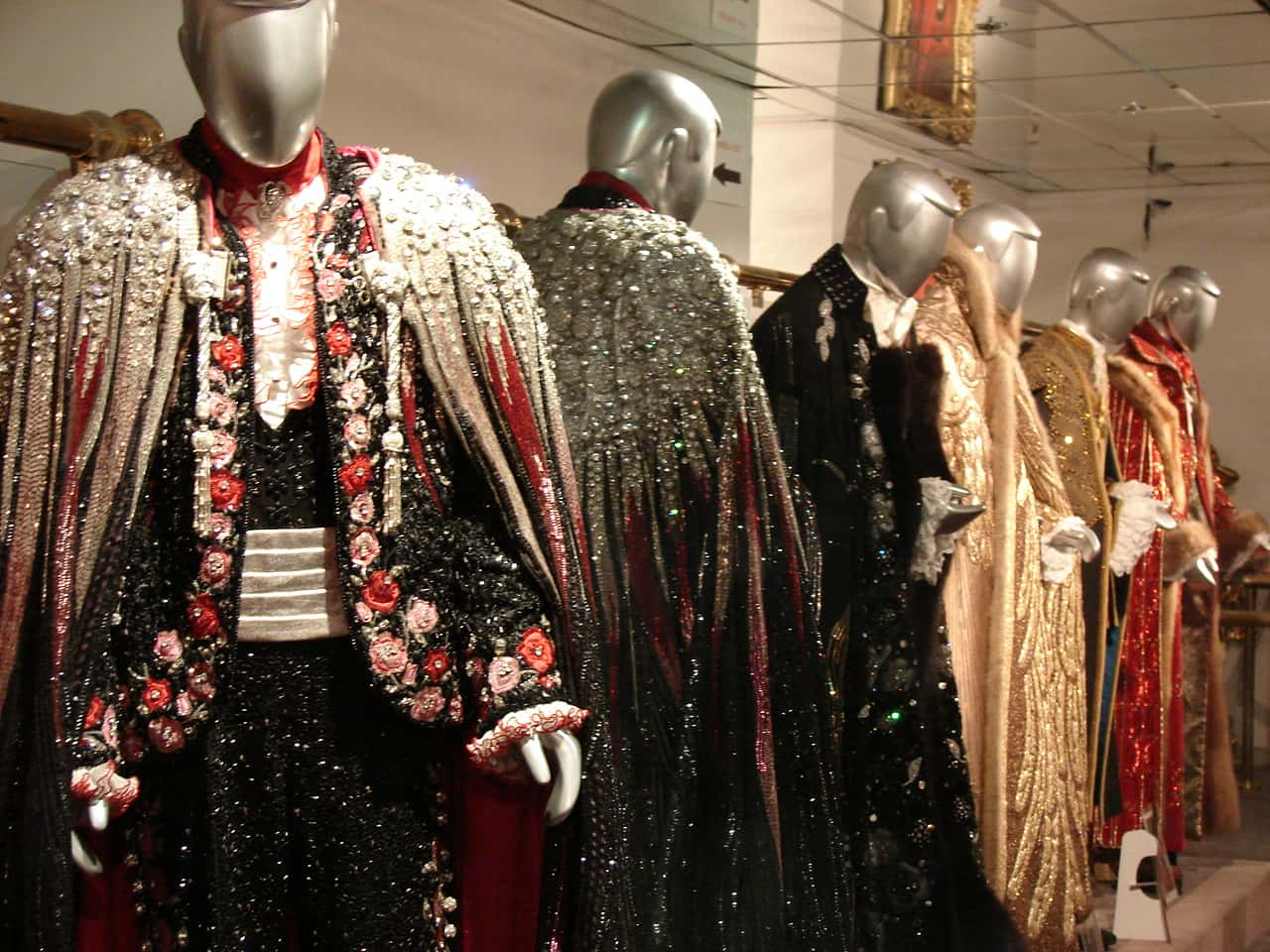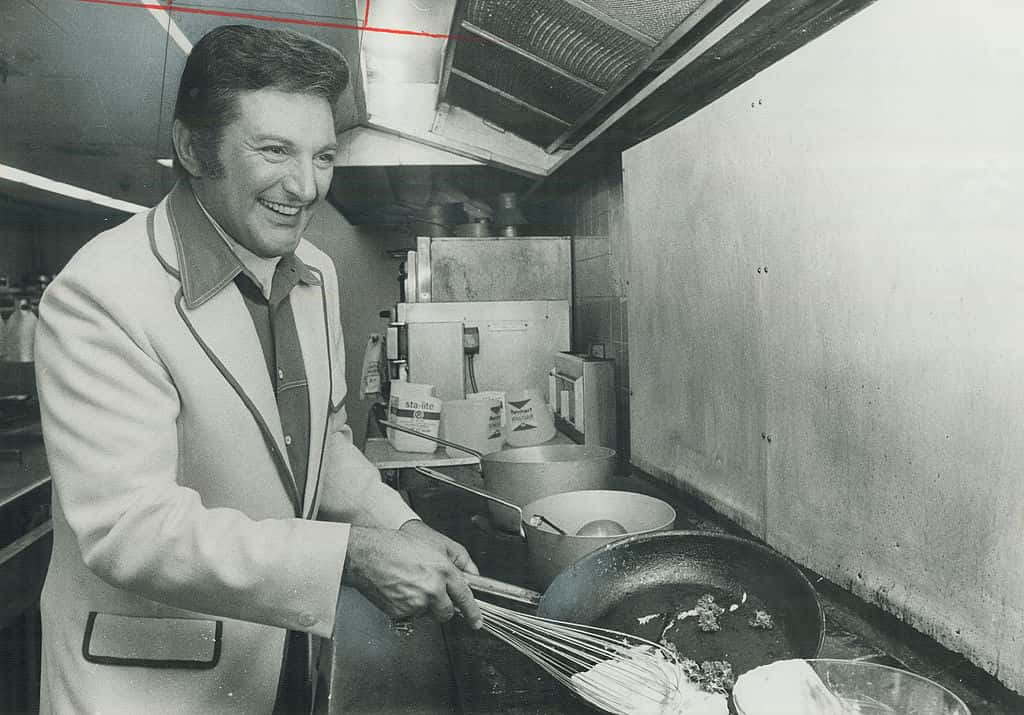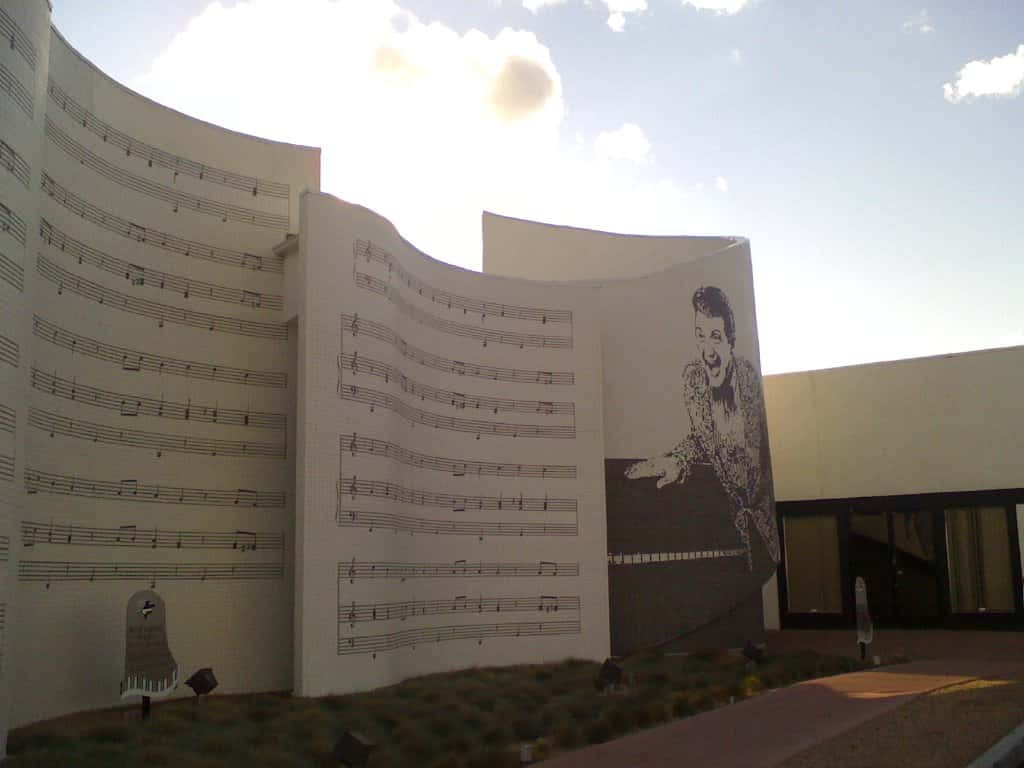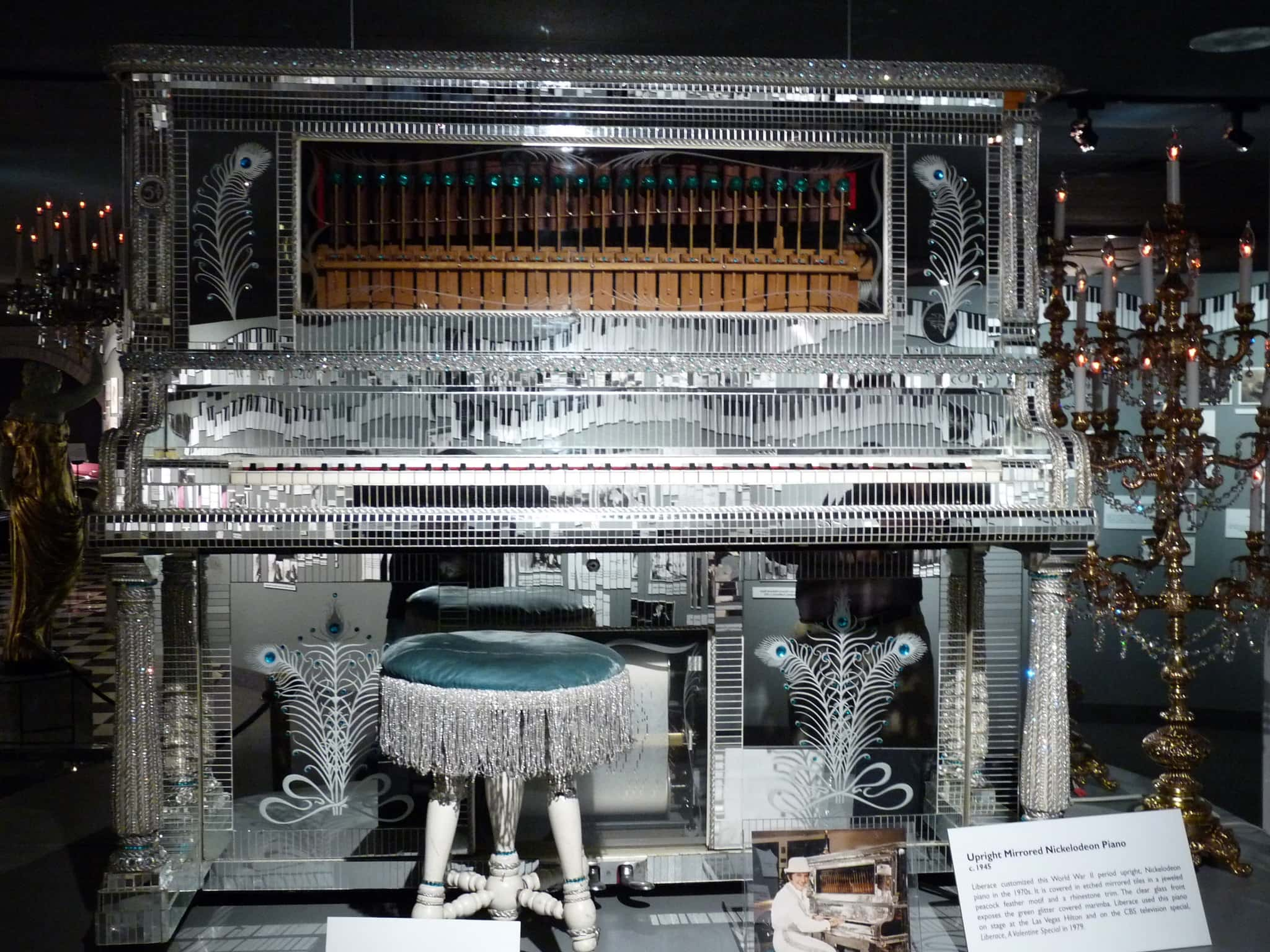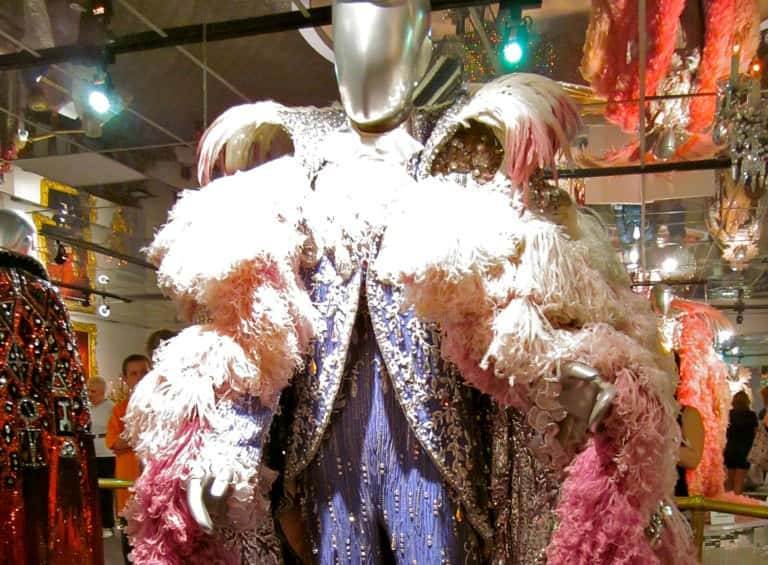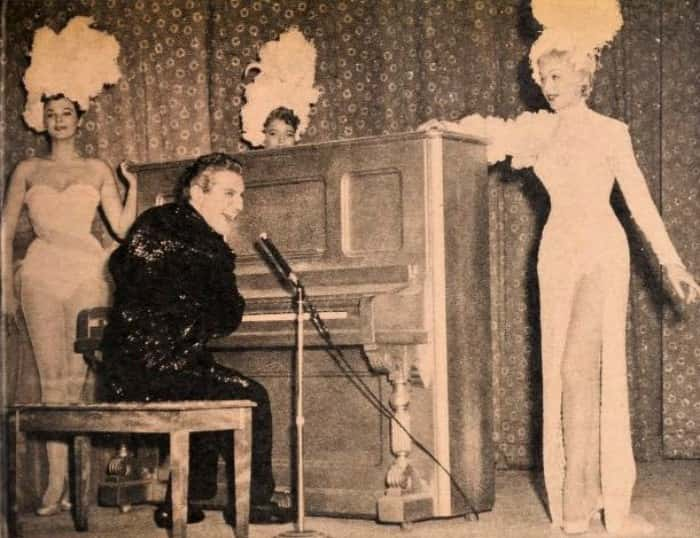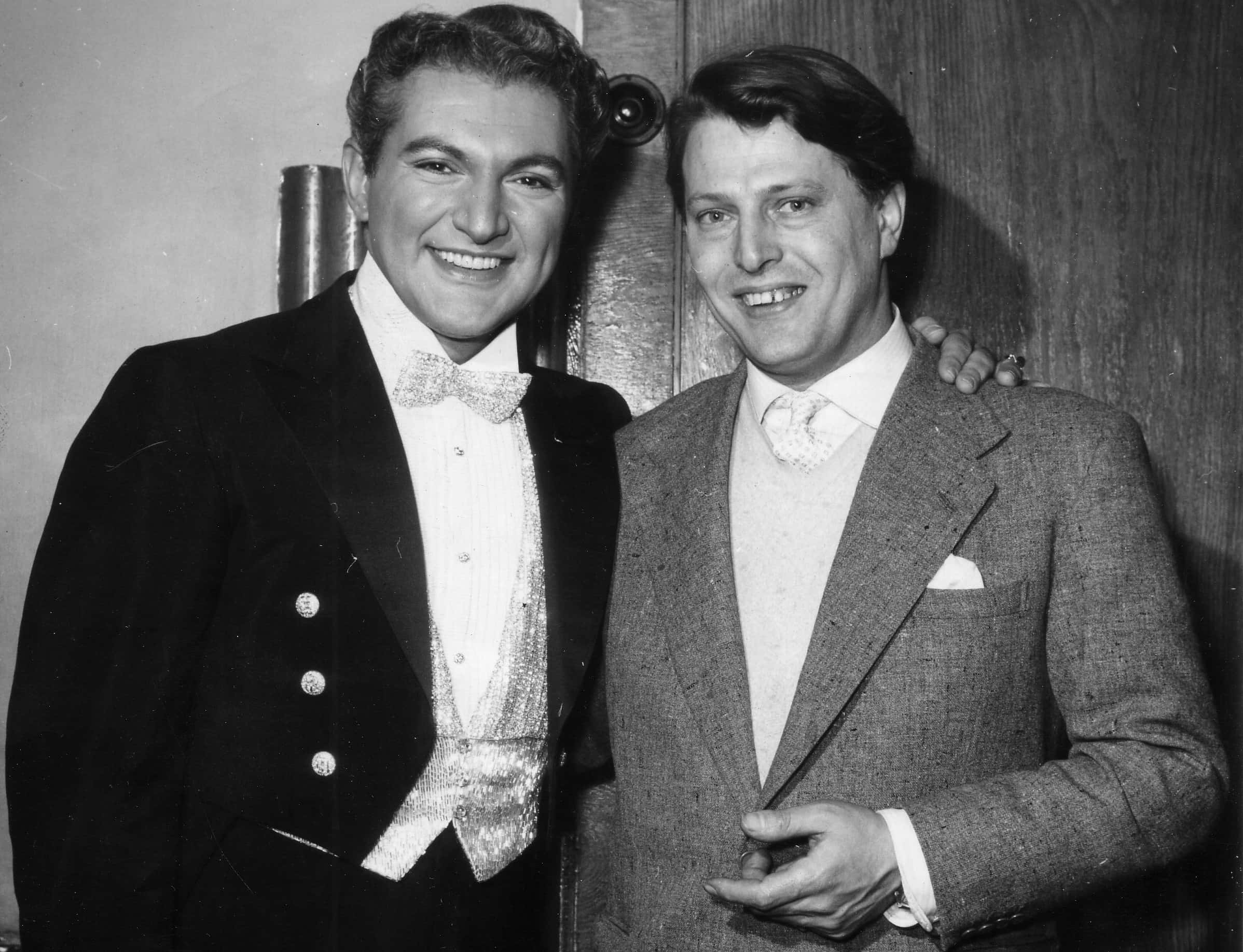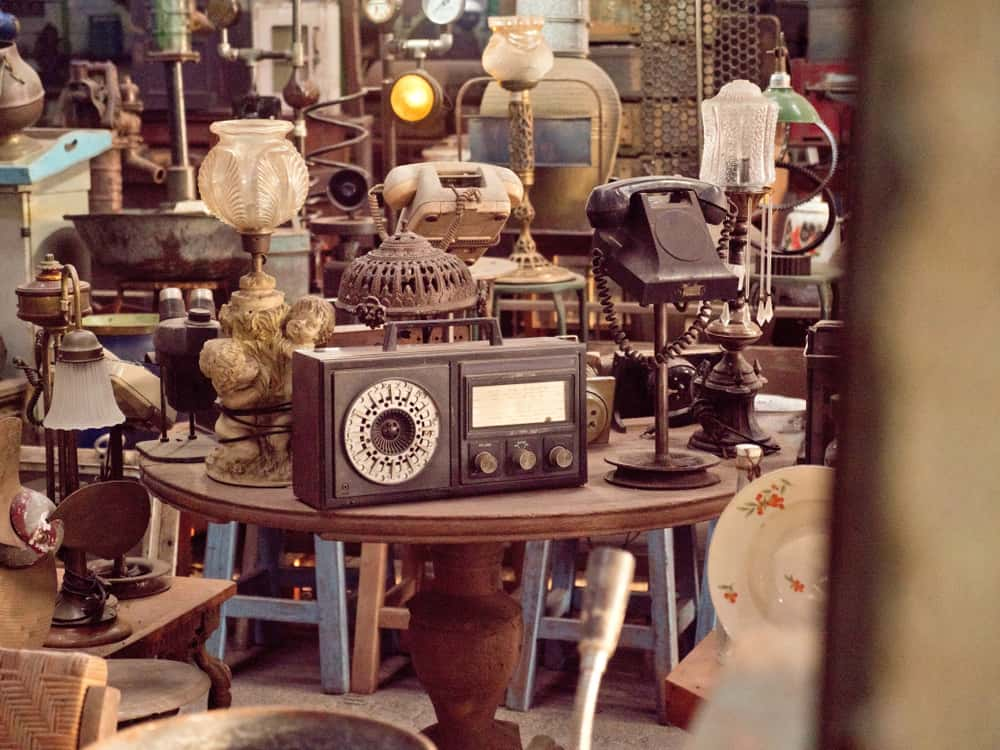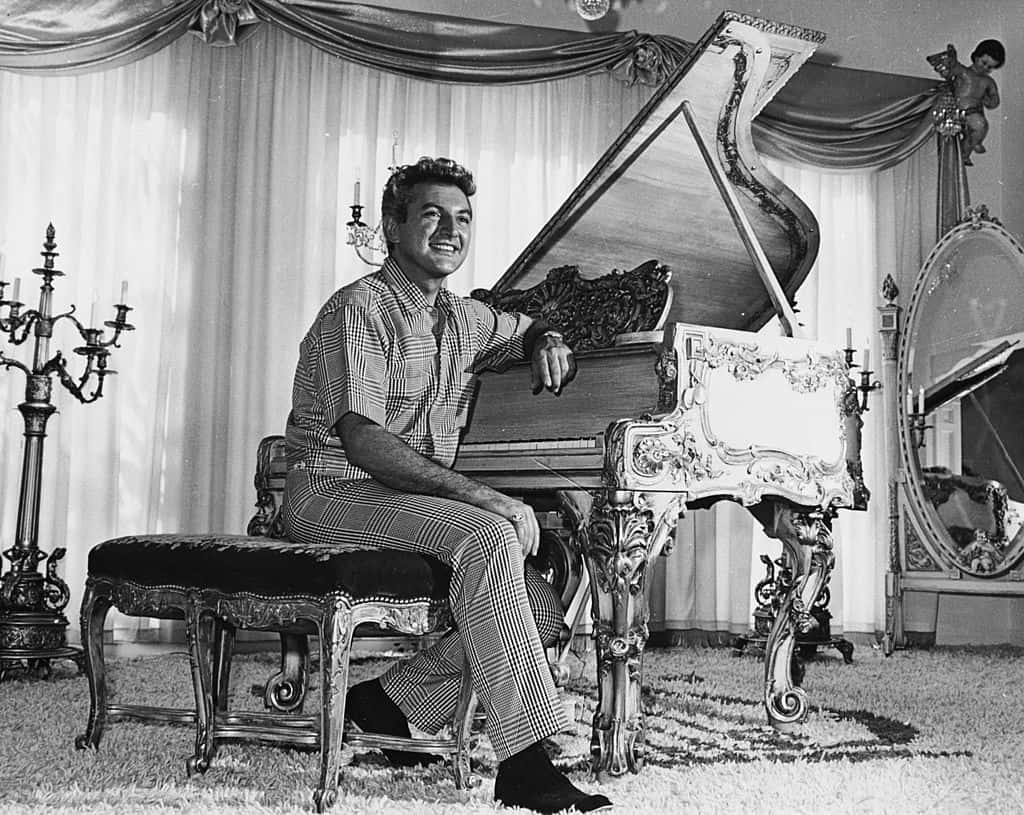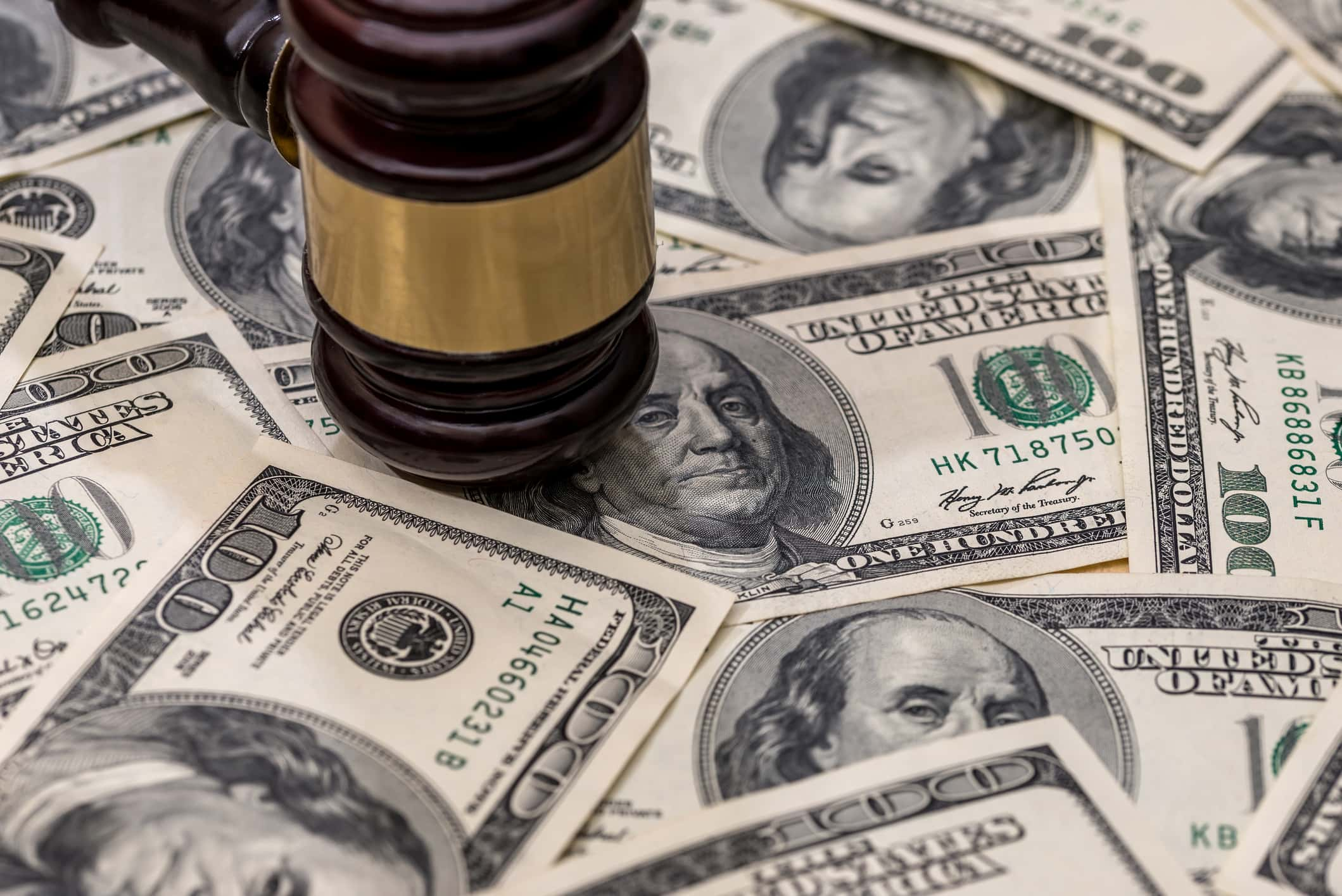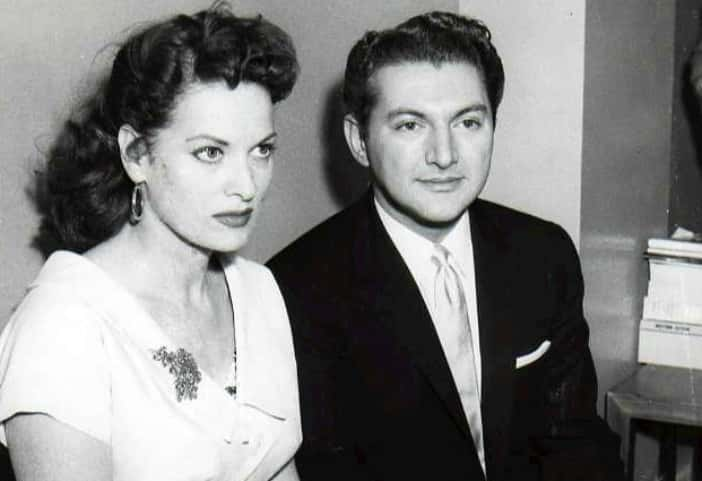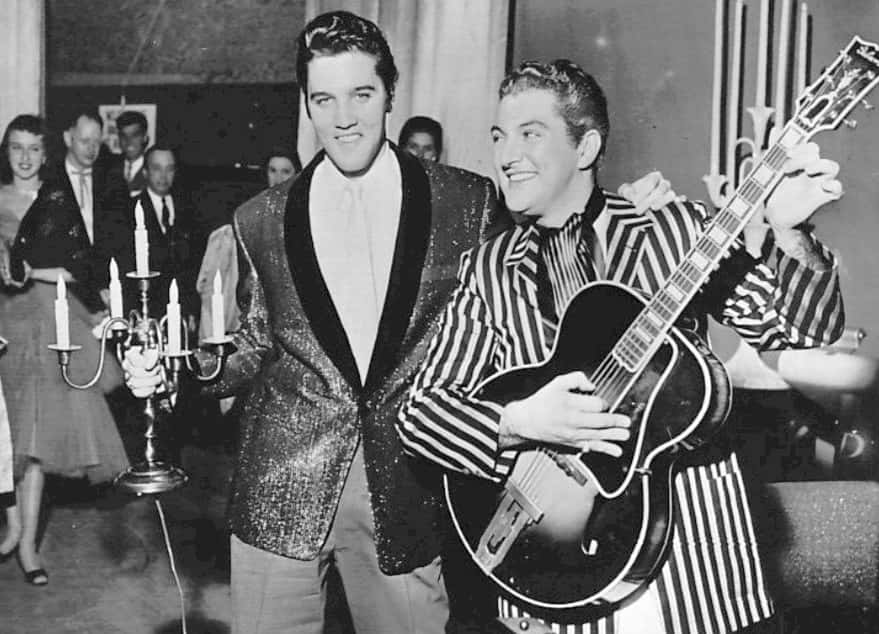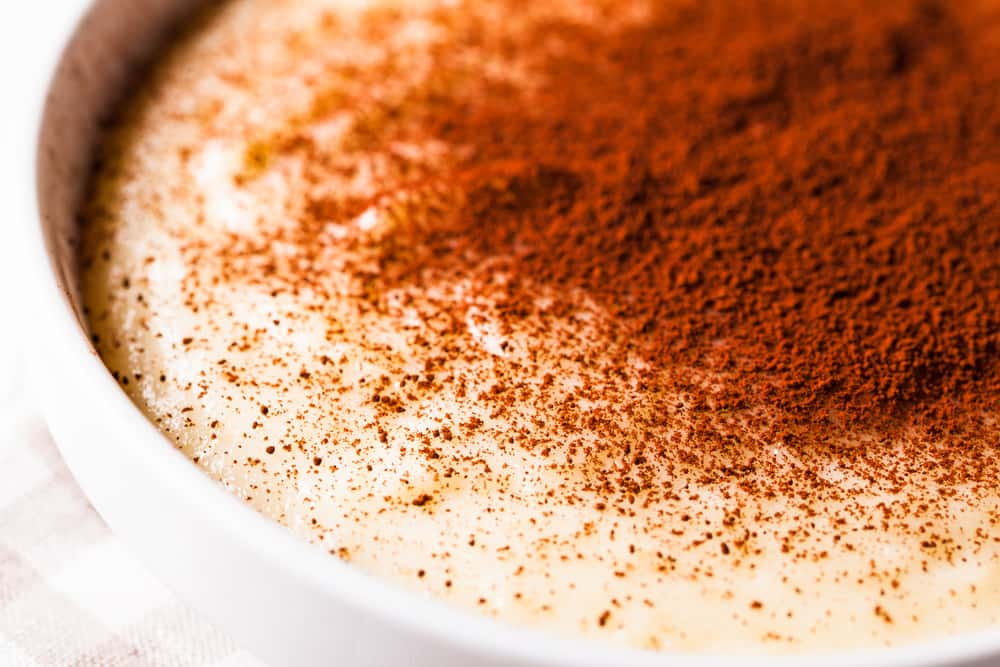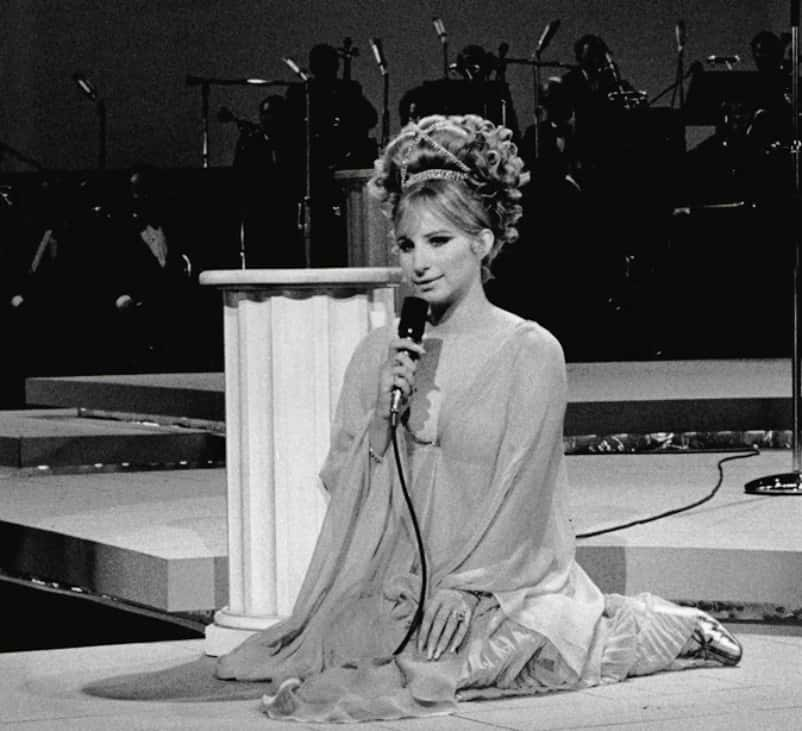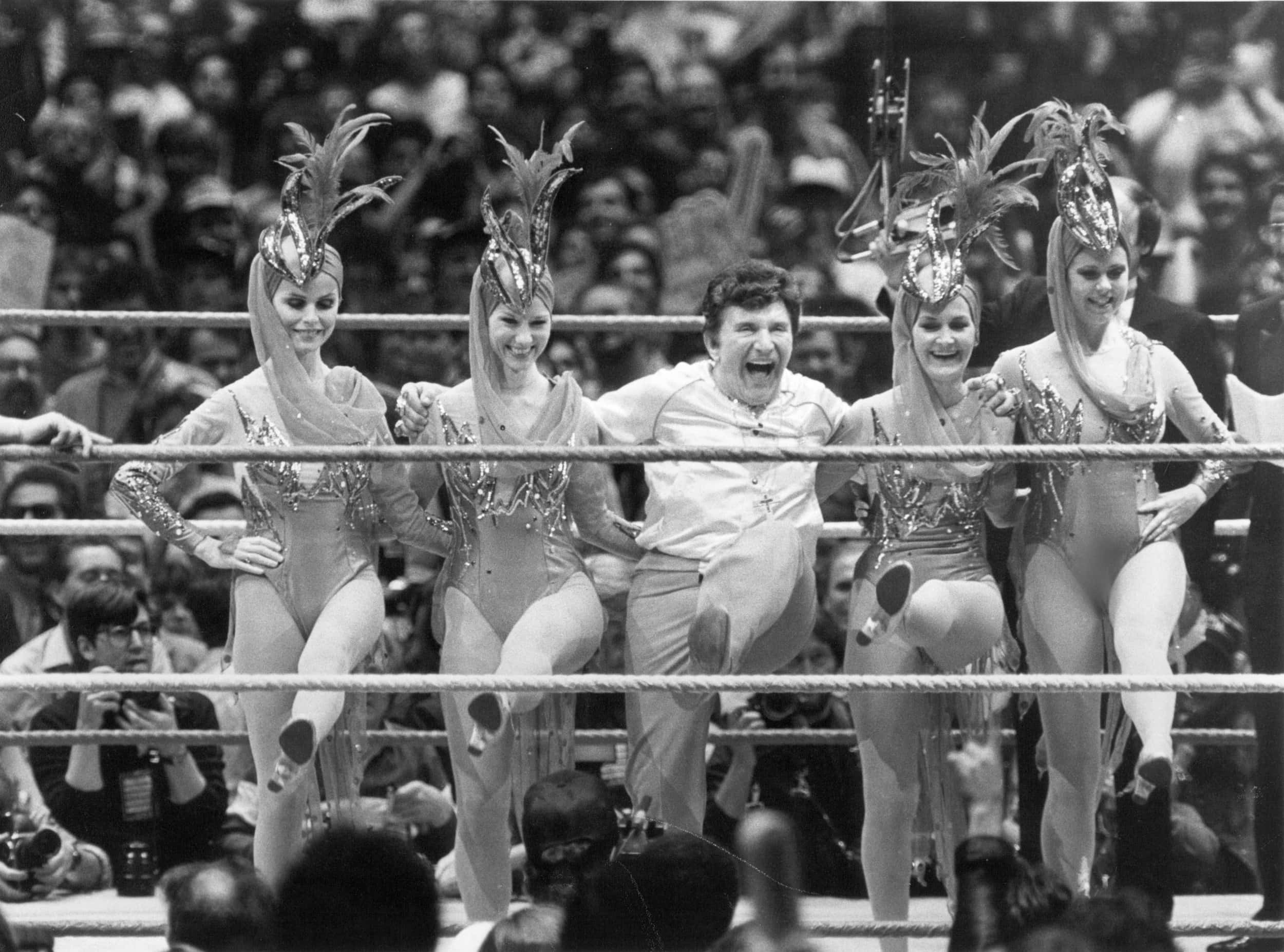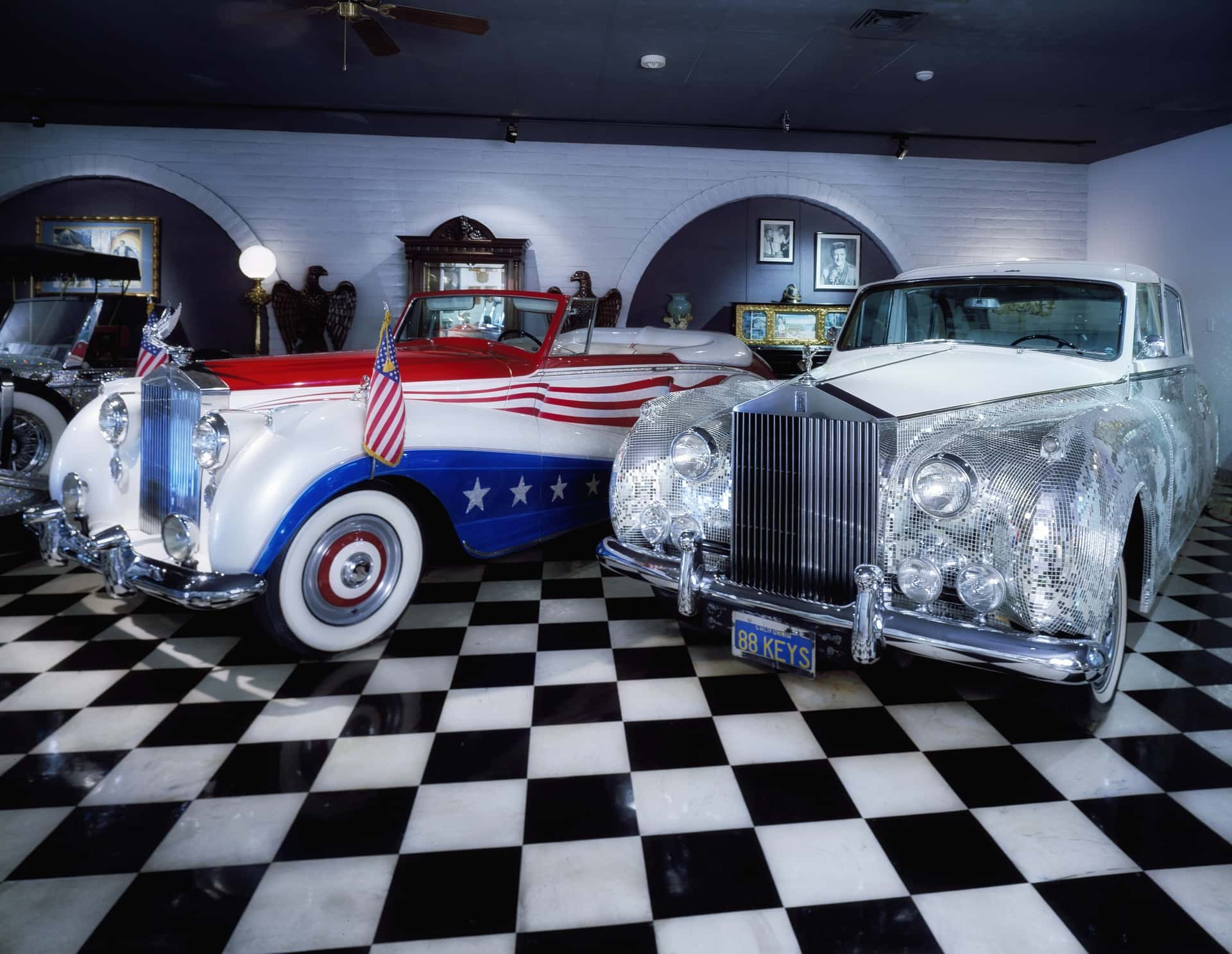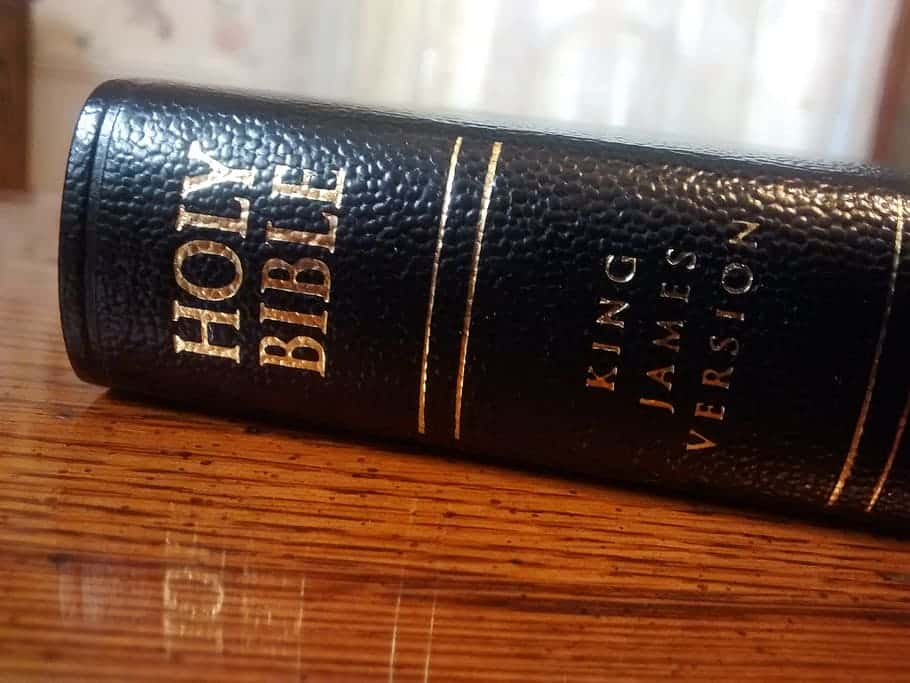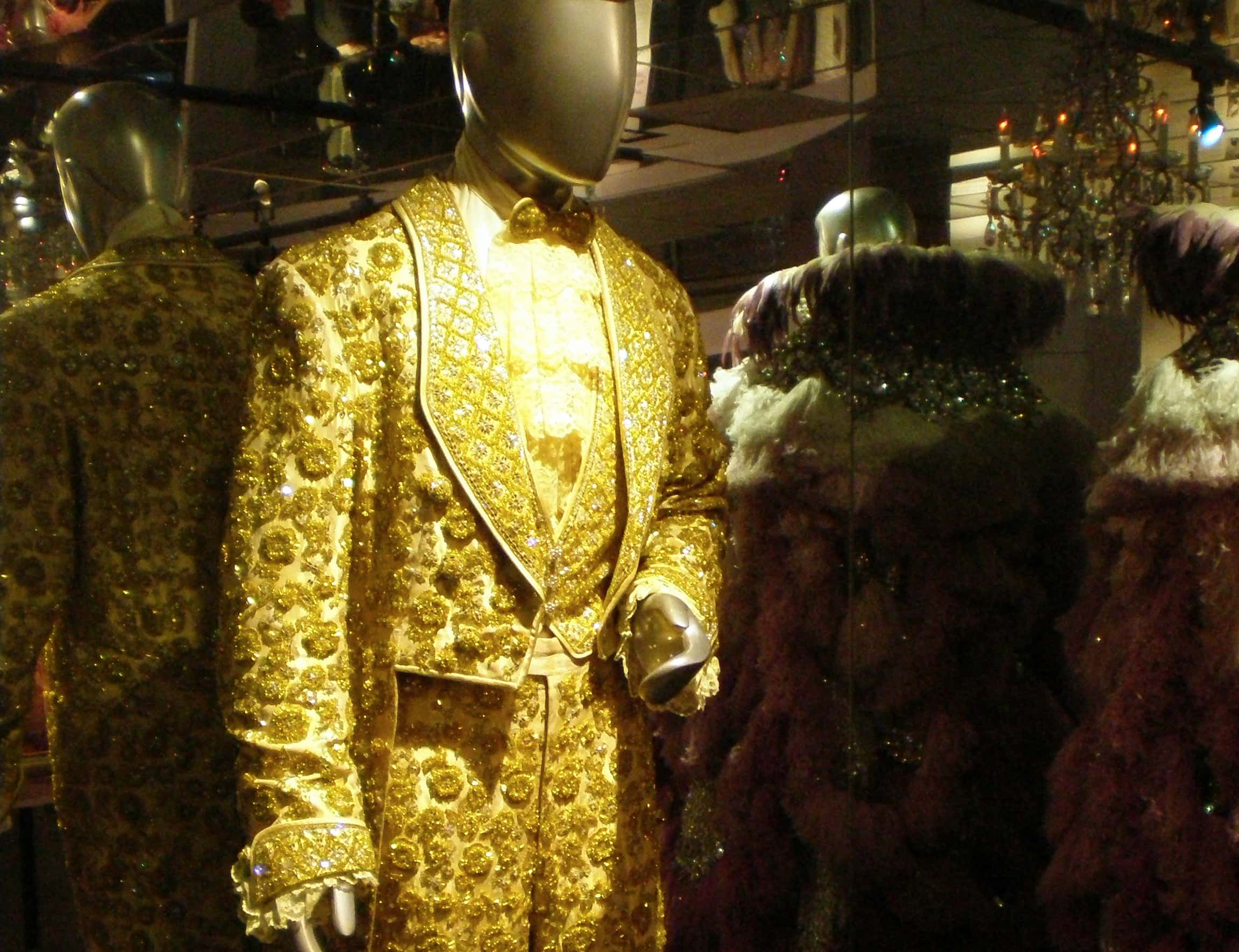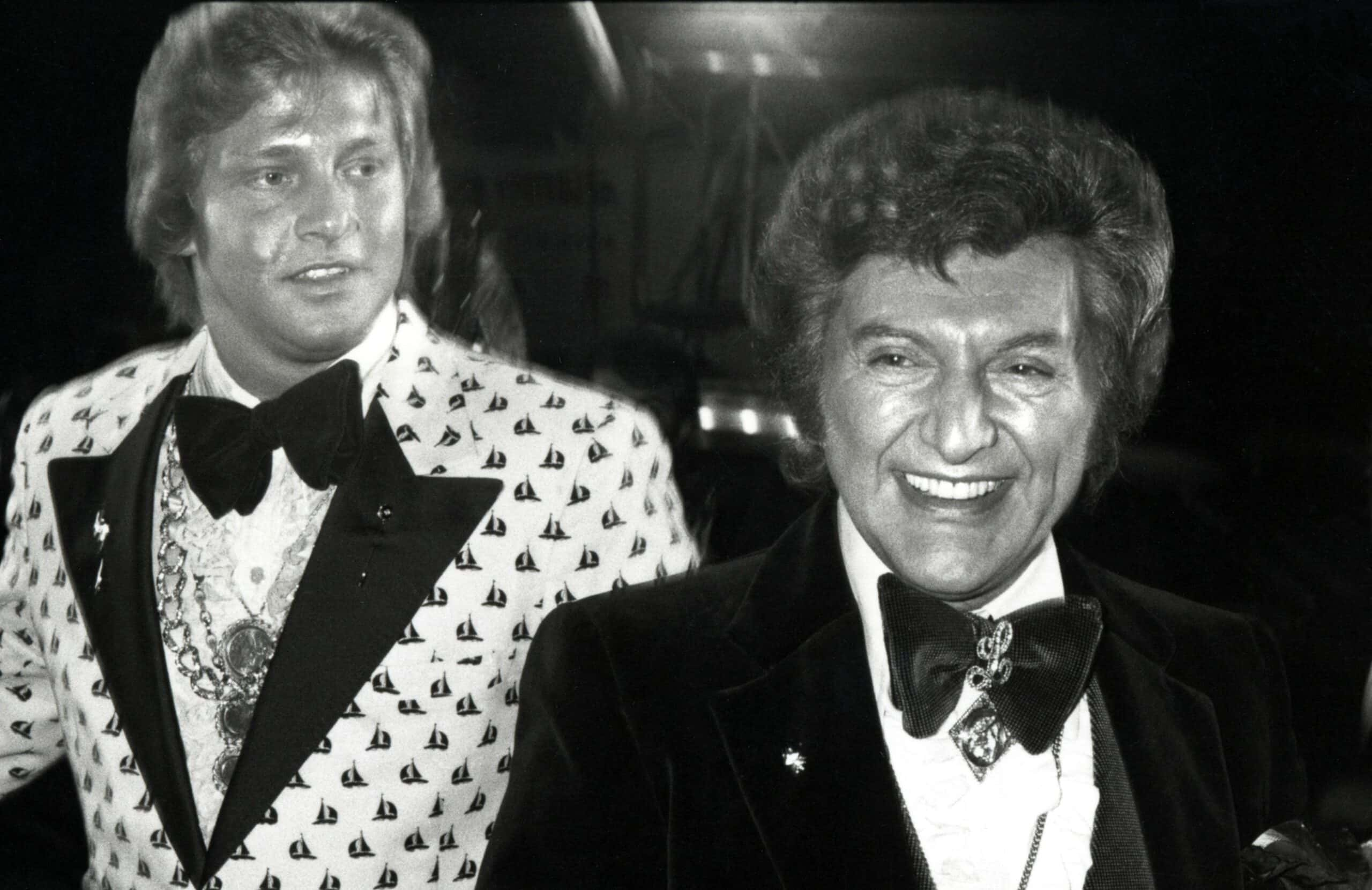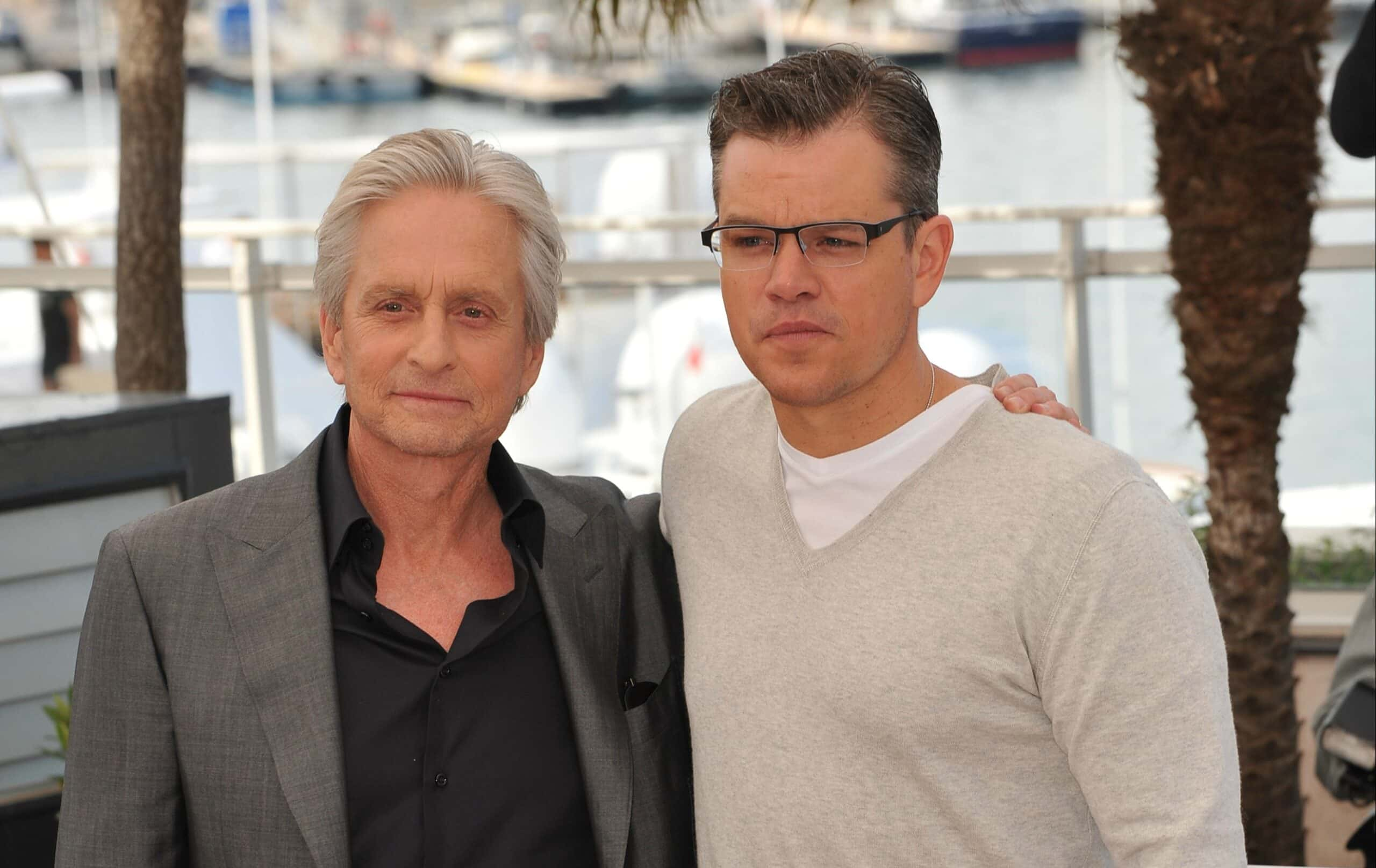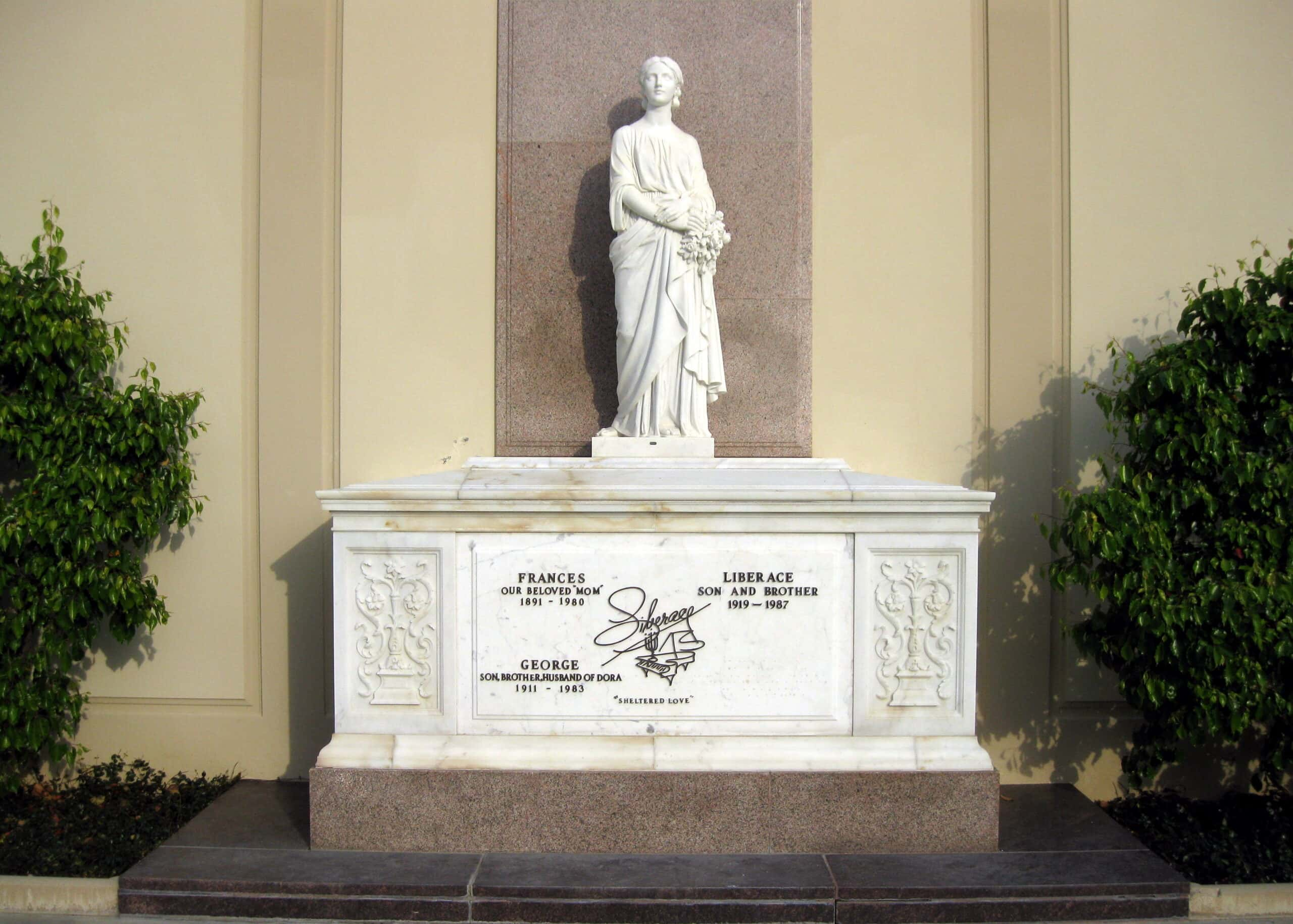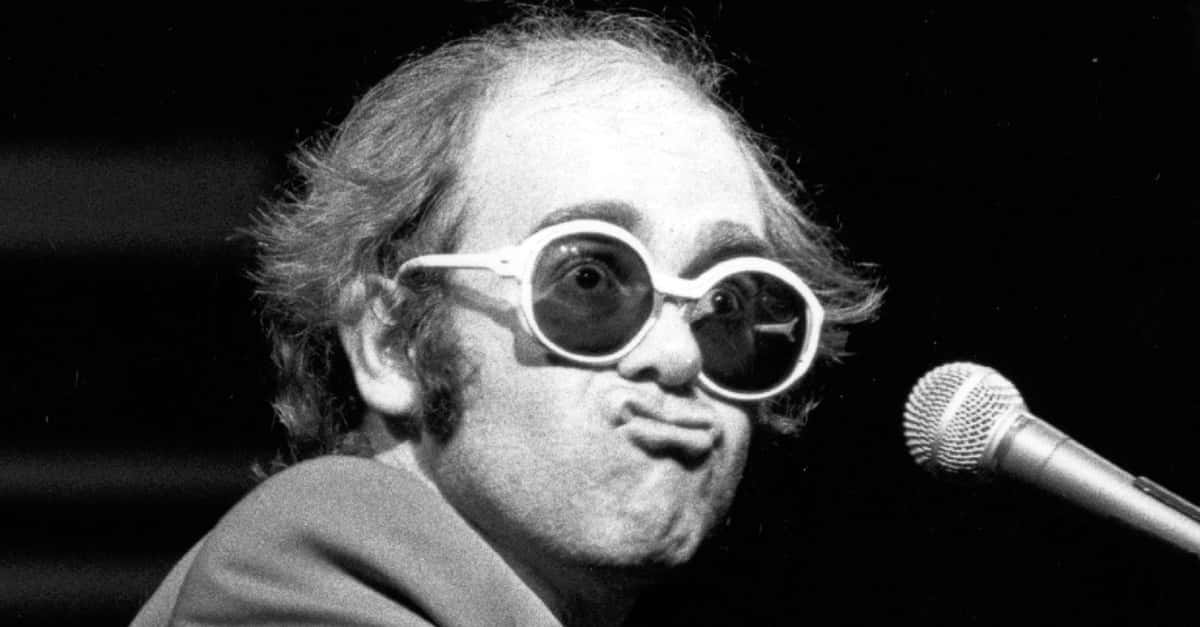Liberace loved creating spectacles on and off stage, but the secrets that were revealed after his death shocked the world.
1. He Was A Child Prodigy
Liberace would have loved social media. It would’ve made him a star at a much earlier age, after all! Liberace began playing piano at the age of three, and I’m guessing if that had all been caught on video, it would’ve gone viral. By the age of seven, he was memorizing difficult pieces of classical music and play them perfectly.
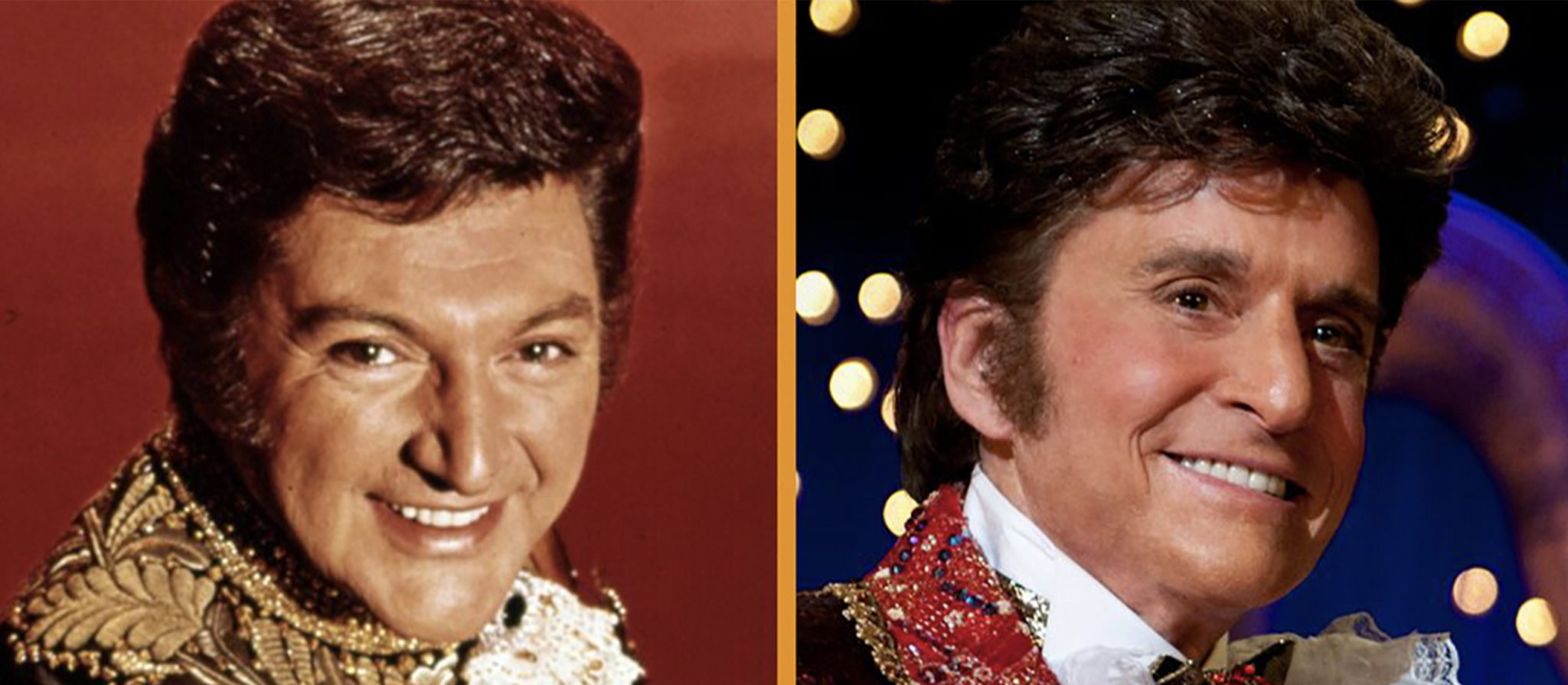
2. He Went By Many Names
Since Wladziu Valentino was quite a mouthful, his friends called him "Lee" and his family called him "Walter". When he was a teenager, Liberace performed under the stage name: Walter Busterkeys.
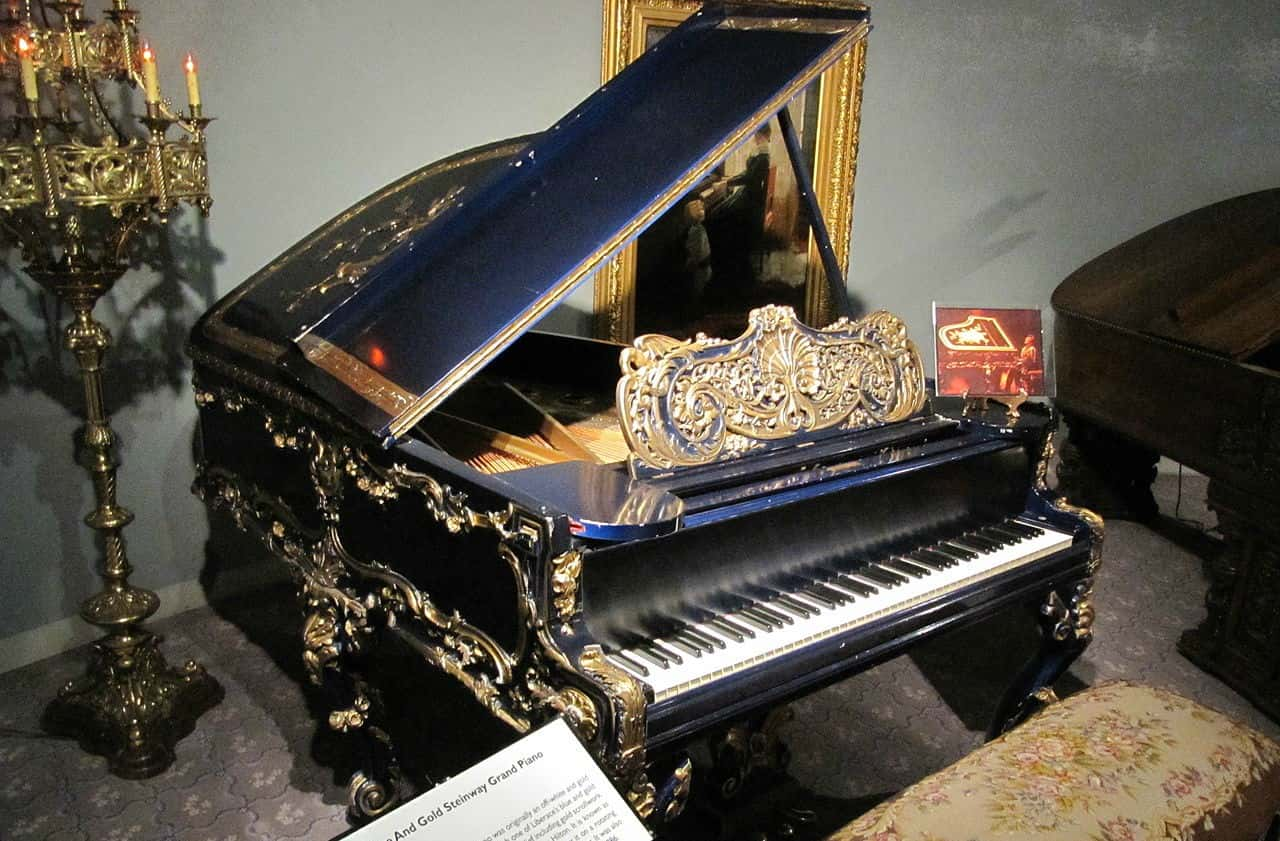 Wikimedia Commons, Mr. Littlehand
Wikimedia Commons, Mr. Littlehand
3. He Had Musical Leanings
Liberace enjoyed playing and listening to the popular tunes of his time, and though he received thorough training in the classics, he only liked to play classical music "with the boring bits left out". That is how he described his own music too, which was classical piano incorporated with elements of pop.
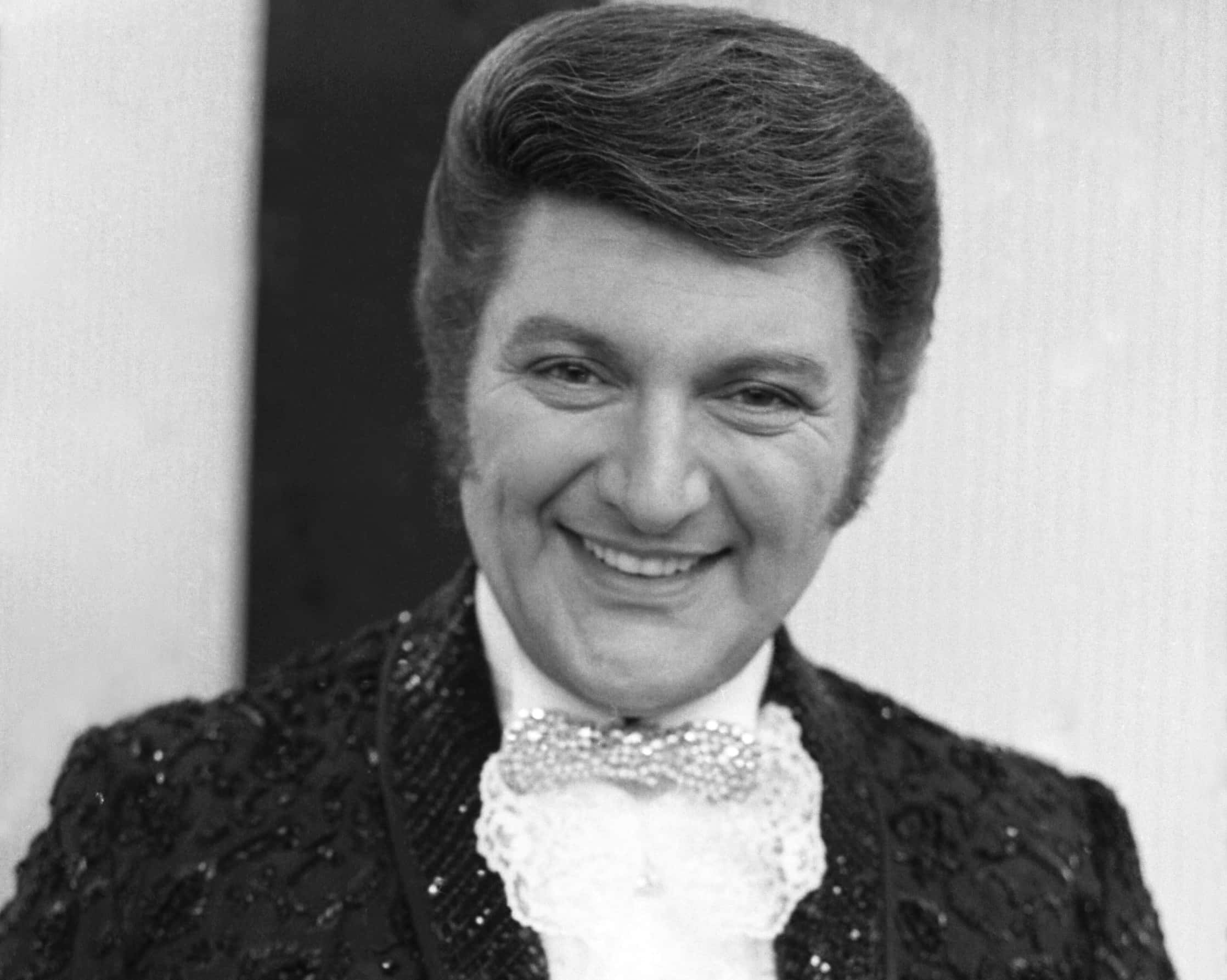 Wikimedia Commons, Allan warren
Wikimedia Commons, Allan warren
4. He Had Haters
Liberace may not have encountered online trolls, but he had his own form of haters. Classical music purists disliked him because of his take on classical music. On top of that, critics disapproved of his music because he liked creating ostentatious sets and performing with a certain flair. They said that it was more fluff than real talent.
5. He’s An Inspiration To Icons
Though he had many critics, and though he may not be remembered with as much reverence as Elvis Presley and Frank Sinatra, it is impossible to deny Liberace’s influence on superstars such as Elton John, David Bowie, Michael Jackson, Boy George, Little Richard, and Mick Jagger…just to name a few. He was a personal hero for Elton John, who was a young boy when he saw him perform and was inspired to see someone like him on television.
6. He Shared The Screen With Batman
Liberace was keen to make it on television. One of his most successful forays onto the small screen was as concert pianist Chandell and his evil twin Harry in the Batman series of 1966. The two episodes he acted in, "The Devil’s Fingers" and "The Dead Ringers", were the highest-rated out of all the show’s episodes.
7. He Didn’t Always Find Success
Of course Liberace wanted to be a big star on the big screen! And Warner Bros wanted the same. This is why they signed him for a two-film contract, believing his popular on-stage persona would make the movie a sure shot hit. His first film was Sincerely Yours, a 1955 remake of The Man Who Played God, the story of a pianist who helps others when he must give up his own career due to deafness. However, the excitement soon turned to heartbreak.
The company thought "Liberace’s name alone will pack theaters," but it wasn’t meant to be. The film flopped miserably at the box office and Warner Bros ended up buying Liberace out of his contract.
 Sincerely Yours (1955), Warner Bros.
Sincerely Yours (1955), Warner Bros.
8. He Took It Hard
The experience with his first film shook him up, and Liberace only made two more cameo appearances in When the Boys Meet Girls and The Loved One. Both films came out in 1965. Although he was initially upset about his failure in the movies, he was able to joke about it later: "I’ve done my bit for motion pictures—I’ve stopped making them".
 The Loved One (1965), Metro-Goldwyn-Mayer
The Loved One (1965), Metro-Goldwyn-Mayer
9. He Knew Where To Go
In reality, for Liberace, the small screen was where it was at. After a few guest appearances on some shows, he managed to get his own show on local television, which was highly successful. This landed him The Liberace Show (1952), the first syndicated show on TV. Only 15 minutes long, this show gained immense popularity and within two years of debuting, it became more in demand than hit shows I Love Lucy and Dragnet.
He also did a daytime series for ABC in 1958-59 and hosted the 1969 CBS summer series, The Liberace Show, which was shot in London.
 The Liberace Show (1952-1969), Guild Films Company
The Liberace Show (1952-1969), Guild Films Company

History's most fascinating stories and darkest secrets, delivered to your inbox daily.
10. He Found Fame & Fortune
In just the first two years of his show, Liberace netted about $7 million and got about 80% of the profits from future reruns. He made wise decisions to increase his popularity through live appearances. One such show was in Madison Square Garden in 1956, where there was a crowd of 13,000 women and 3,000 men to cheer him on.
His TV show viewership was up to 30 million viewers at one time, and he received up to 10,000 fan letters in a week.
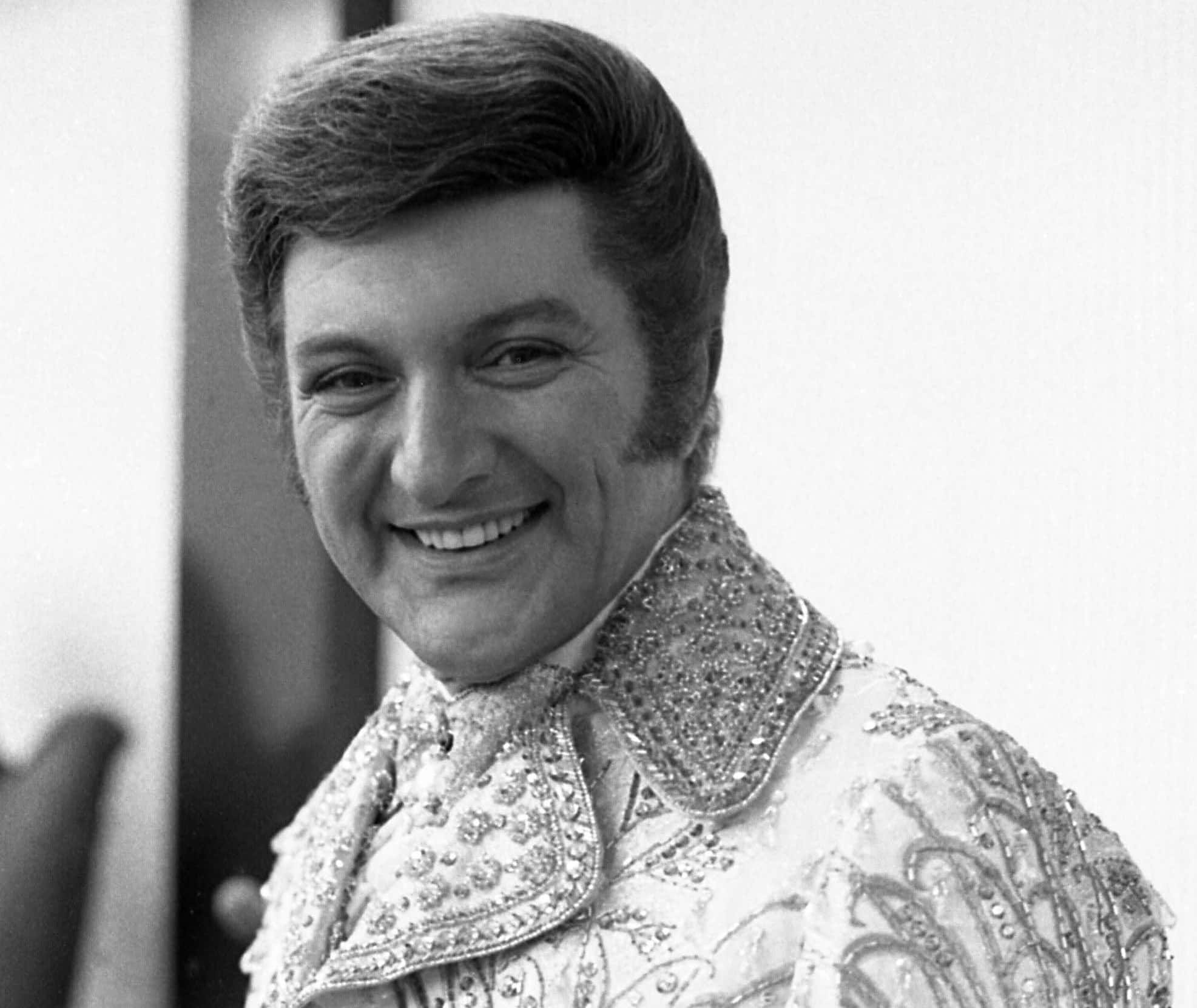 Wikimedia Commons, Allan warren
Wikimedia Commons, Allan warren
11. He Honed His Skill
Liberace was a determined young man. He was playing jazz piano with a group called "The Mixers" in school when he 15. He honed his skills by playing wherever he got a chance to perform: in theaters, on the local radio, for dancing classes and weddings. Later, he started earning a living by playing as Walter Busterkeys in cabarets and nightclubs.
At the age of 17, he won a scholarship to study and further polish his talent by attending the Wisconsin College of Music. And, never one to slow down, at the age of 20 he debuted as a soloist on the Chicago Symphony.
12. He Was Met With Disapproval
Just because he was honing his skills doesn’t mean his parents were happy with the direction he was taking. Liberace’s parents hated the fact that he was playing in bars and night clubs. Tensions remained high until they realized he was earning decent money for doing something he loved. Naturally, they didn’t think it was something undesirable anymore!
13. They Were Demanding
Getting paid or not, Liberace’s parents weren’t exactly supportive. His mother, Frances, was a baker and a teacher of Polish descent, who thought music lessons were unaffordable and that owning an instrument was an unnecessary luxury. His father, Salvator (better known as Sam) was, however, eager to leave behind a musical legacy for the world in the shape of his children.
Sam was an immigrant from Italy who played the French horn in bands and movie theaters, but also worked as a common laborer. His determination to teach his kids music made him a harsh taskmaster and he demanded nothing short of perfection from his children, especially Liberace.
14. He Had Daddy Issues
To say that Liberace and his father had a difficult relationship would be an understatement. Sam was hard on his son because he wanted him to excel. Later, he was unhappy when Liberace began playing in strip clubs and bars. However, he was also upset because he loved classical music, and he didn’t understand why Liberace chose not to memorize it, or why he preferred playing popular tunes as opposed to classical ones. But that wasn’t the only reason for their animosity.
The relationship took a further nosedive when Liberace discovered his father had a mistress. Sam and Liberace’s mother split up soon after.
15. The Siblings
Liberace had an older brother, George—who played violin, a sister—Angelina, and a younger brother—Rudy, or Rudolph Valentino Liberace. Liberace had been born as one half of a pair of twins—however, his twin brother had sadly passed on at birth.
16. His Idol Became His Teacher
The Polish pianist Ignacy Paderewski was a great influence on Liberace. He used to try and practice his technique and was "intoxicated with joy" when he got to meet his idol backstage after a concert when he was just eight. "My dreams were filled with fantasies of following his footsteps". To achieve this, Liberace practiced day and night. Eventually, Paderewski became a friend of the family and endorsed the young pianist’s talent.
Someone else who helped Liberace in his piano playing was his music teacher, Florence Bettray-Kelley.
17. He Found A Style Of His Own
At the age of 18, when most kids are still figuring out what to do with their lives, Liberace came up with a plan. He wanted his unique style of piano-playing to bring him success and recognition, so he took a formal classical music competition as his chance. Liberace was asked to play a popular comedy song, "Three Little Fishies," in an encore. He did so with panache, adding classical flourishes that enchanted the audience. His performance was applauded, not just because of his prodigious musical talent, but also for "flair and showmanship".
After that, he completely moved away from traditional classical music and revamped his own act by playing "pop with a bit of classics". He also developed his trademark flashy and extravagant stage persona, complete with over the top costumes and stage sets.
18. He Was Inspired
One of the most famous props Liberace used on stage was the candelabra. He decked his piano with one whenever he performed on stage, borrowing the idea from a film he had watched about the composer Frederic Chopin.
19. It Was Time For A Change
Liberace had become Walter Busterkeys because he felt it was a better fit for the stage. However, he later decided that he wanted to be remembered by his own name. So, he chose to use just his surname like his mentor and idol, Ignacy Paderewski. He put out a press release to announce this change and made a big deal about it being pronounced correctly.
20. He Broke Records
In 1953, Ripley’s Believe It or Not confirmed Liberace as the fastest pianist in the world, when he played 6,000 notes in two minutes.
21. His Childhood Was Miserable
At home, his parents pressured him—but things were even worse for the young boy at school. Liberace suffered from a speech disorder as a child, which made him self-conscious. It didn’t help that he was mocked for being different from other children. He wasn’t fond of sports, he liked cooking and music, and he was more "girly" than most boys were used to.
Liberace was able to turn these differences around in his favor as he grew older though—his fashion-forward choices and dressing style made him stand out, and he learned to turn "eccentricities into attention-getting practices". This helped him become more popular at school, though there were still some kids who continued to ridicule him.
22. He Committed To A Theme
Liberace totally believed in going all out for everything! He owned many houses and they were all furnished with his trademark opulent style. The house in Sherman Oaks, California, where he lived with his mother was decorated with a musical theme. There were musical notes on the fence outside, and the front door had musical staffs above it.
The most fascinating aspect of the house though, was a piano-shaped swimming pool! Black and white stripes—the piano keys—were painted on the concrete and made it look like a giant piano.
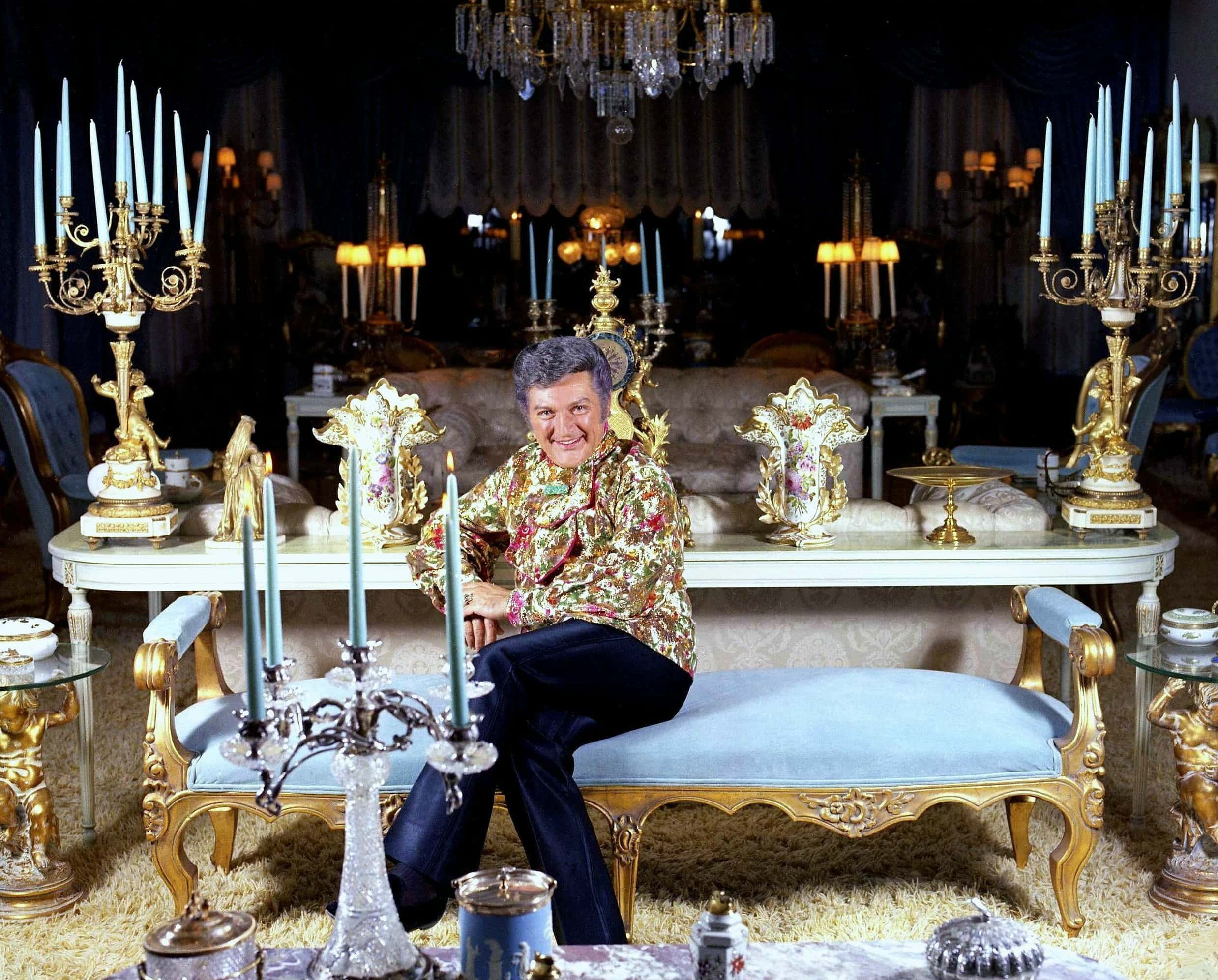 Wikimedia Commons, Allan warren
Wikimedia Commons, Allan warren
23. He Had Other Skills
Music wasn’t Liberace’s only passion. He had always loved cooking as well. He owned a restaurant—Tivoli Gardens—in Las Vegas for many years and even published some cookbooks, the most famous of which was Liberace Cooks, co-written by Carol Truax. This included recipes for "Liberace Lasagne" and "Liberace Sticky Buns," and featured recipes from the "seven dining rooms" of his Hollywood home.
24. He Was Prolific
Liberace had recorded around ten discs by 1951, but after the success of The Liberace Show, the sales of his albums grew significantly. He had recorded 70 discs by 1954. His most successful single was "Ave Maria," which sold 300,000 copies.
25. He Had Personalized Pianos
Liberace had to have an instrument that matched his style. He bought a "rare, oversized, gold-leafed Bluthner Grand" piano that he would declare was "priceless". Apart from this, he had several other elaborate, customized pianos as well, some studded with rhinestones and mirrors.
26. They Got To Him
Liberace didn’t believe in doing anything by halves. He started his career coming on stage in regular tuxes and tails, but soon succumbed to the pull of the more flamboyant side of his personality. Sadly, one accusation made him self-conscious about his style. When rumors spread about his sexuality, he began to go back to a more staid look—but eventually, he decided it was more important to be true to who he was.
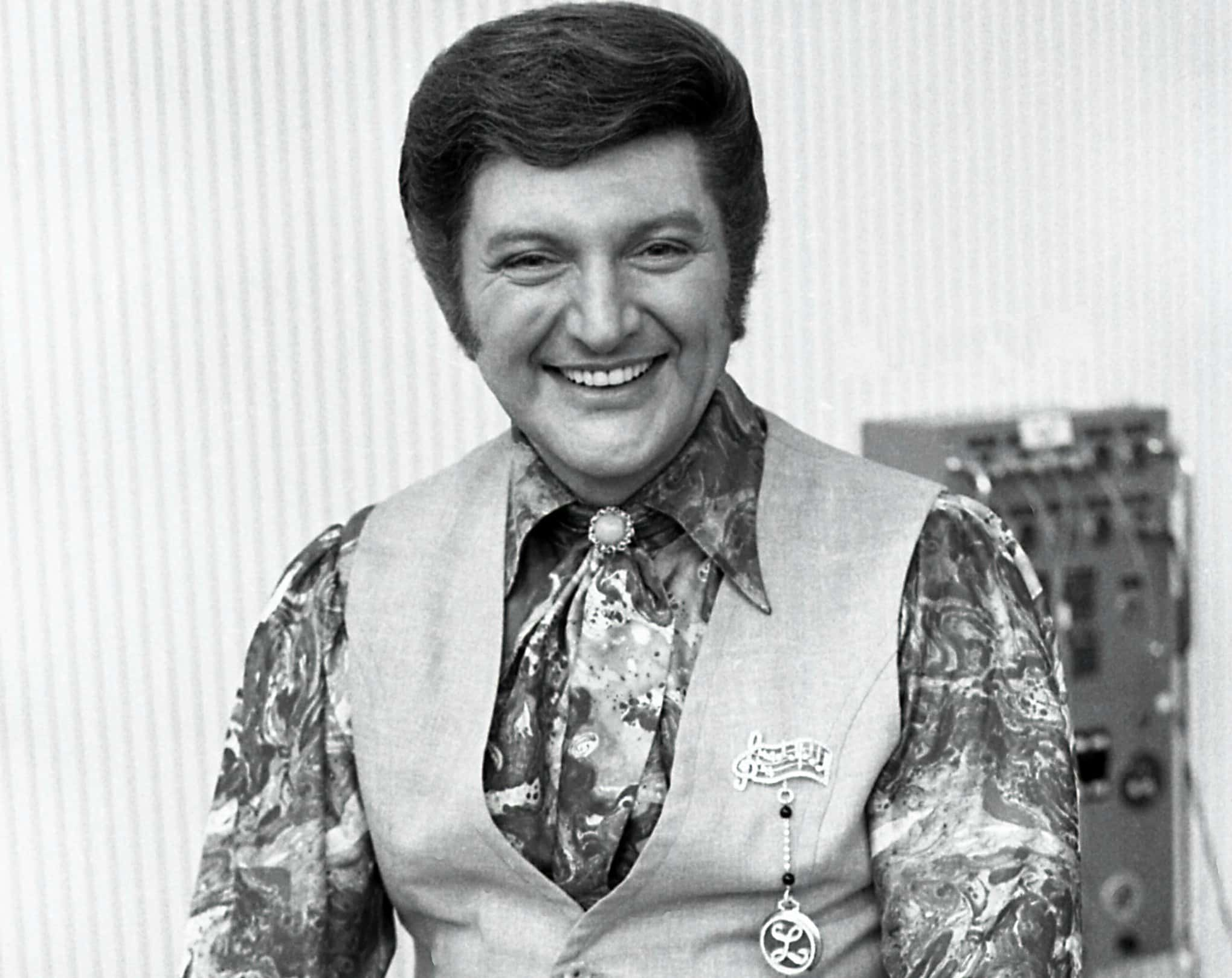 Wikimedia Commons, Allan warren
Wikimedia Commons, Allan warren
27. He Was Costume King
As a result, his costumes grew more and more over the top with time. One was designed to look as if he was coming out of a Faberge egg, another was a 150-pound mink cape, and one particularly flashy one was a flame costume with mirrors studded all over the cape on metallic fabric and featuring 600 electric lights. When he wore it, he looked like he was on fire—eat your heart out Katniss Everdeen.
He also loved wearing huge and numerous rings, and shoes with chunky heels to give him height. Liberace was once quoted as saying: "People ask how can I play with all those rings, and I reply, Very well, thank you". Many say that the costumes were a way for Liberace to be who he was without having to come out publicly.
28. He Was Beloved
Early on in his career, Liberace learned how important it was for him to bond with his audience. He did this by joking with them, including them in whatever he was doing on stage, asking them for requests, and keeping up a stream of endless chatter between his acts. He called himself a "one-man Disneyland" and often claimed that "I don’t give concerts, I put on a show".
At the end of his show, he would invite his audience on stage for hugs, handshakes, and kisses. They would be able to touch his clothes, jewelry, piano, and hands if they wished. Even critics couldn’t deny that he had a "warm and wonderful way" to work his audience and that he "exude[d] a love" that was given back to him "a thousand-fold".
Women also loved how attached he was to his mom, who was always in the front row of the audience for The Liberace Show, and that his brother George was his violinist and orchestral arranger.
29. Liberace’s Bank
Liberace is credited with inventing or at least popularizing, the term "laugh all the way to the bank". It was after he had been given a bad review that he wrote back to the critic and told him that he would now "laugh all the way to the bank". Later he also said that whenever he got a bad review, he would invite his staff to join him in "crying all the way to the bank," and finally, "You know that bank I used to cry all the way to? I bought it".
30. He Was Pitch Perfect
Liberace was a great salesman and could pitch himself perfectly to companies, which led to him getting numerous promotional tie-ins with banks, insurance companies, and even morticians. Like an Instagram Influencer of today, Liberace was sent many new products by companies to test and endorse. He was once even sent a white Cadillac Limousine.
31. He Branched Out
Apart from his restaurant, Liberace also owned an antique store in Beverly Hills, California. He loved antiques himself and had many pieces in his own home.
32. His Star Nearly Faded Out
In the 60s, Liberace’s star began to decline a little. The fighter that he was, he came back from his almost-deathbed reinvigorated and determined to get back his success. He appealed to his fans by playing in small upper-town clubs and connected with them through television and promotional appearances. He also upped the glamor quotient and because of that, his live shows at the Las Vegas Hilton and Lake Tahoe earned him over $300,000 a week.
33. They Cast Aspersions On His Sexuality
With his wardrobe and antics on stage, it’s surprising that murmurs about Liberace’s sexuality started as late as they did. In 1959, The Daily Mirror published an article calling him gay, saying that he was "a deadly, winking, sniggering, snuggling, chromium-plated, scent-impregnated, luminous, quivering, giggling, fruit-flavored, mincing, ice-covered heap of mother love". Ugh.
However, Liberace shot back. He denied all aspersions and sued the newspaper for libel. He won £8,000 in damages, marking another instance where he "cried all the way to the bank". Around the same time, a US tabloid, The Confidential, also published a story alleging that Liberace had an affair with a male press agent in Dallas. The pianist also sued them for false allegations and won that case as well.
34. He Was Lonely
Behind the glitz and glamor lay the heartbreaking truth. One of Liberace’s friends, Michael Thornton, claimed that "in spite of his huge wealth and massive fame," he always had a sense that the pianist was an extremely lonely man, "as if his life was somewhat hollow".
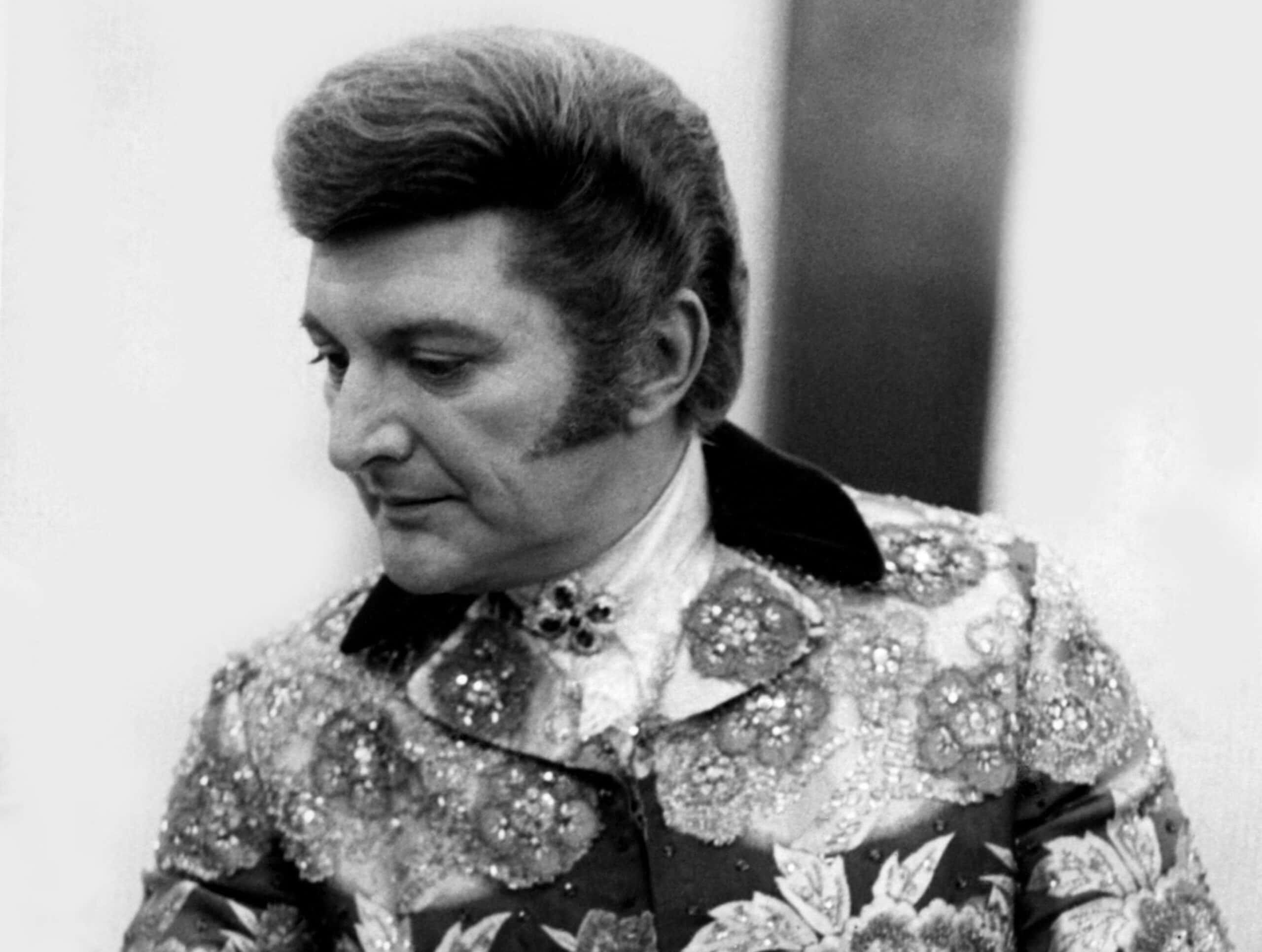 Wikimedia Commons, Allan warren
Wikimedia Commons, Allan warren
35. There Were Women In His Life
Liberace was linked with many women while he lived. At one time it was rumored that he was engaged to Joanne Rio. Rio’s father, however, would have none of it, and put an end to the relationship because of the rumors about Liberace’s sexuality. There were many others whom he escorted to events, who were friends that also acted as beards—including Judy Garland, Susan Hayward, Gale Storm, and Mae West, just to name just a few.
36. The Two Idols Met
Not only did Elvis Presley join him on stage in 1956, Liberace also had some influence on the rock icon’s style. The young Presley had asked the pianist for some advice on his act, and in reply, Liberace gave him his gold lame’ jacket. Presley took this advice to heart and it became fashionable for rock stars to "look as glitzy as possible".
37. His Last Meal Was Surprising
The last meal that Liberace ate was Cream of Wheat cereal, with hot milk and brown sugar. Nothing flamboyant about that at all!
38. He Was A Streisand Supporter
Liberace was a big fan of Barbara Streisand. He invited her to be his opening act when she was just 21, and when the audience wasn’t warming up to her, he stepped in to introduce her. When his fans realized he had chosen her personally, they paid more attention to her and she soon became extremely popular.
39. He Invented A Trendsetting Toilet
Who wants to see a toilet inside a bathroom? According to Liberace, crazy people, that’s who! He invented a "retractable toilet" that disappeared into the wall of his bathroom. "There’s just no reason why you should walk into a bathroom and see a toilet," he declared to Rolling Stone. "It’s unglamorous".
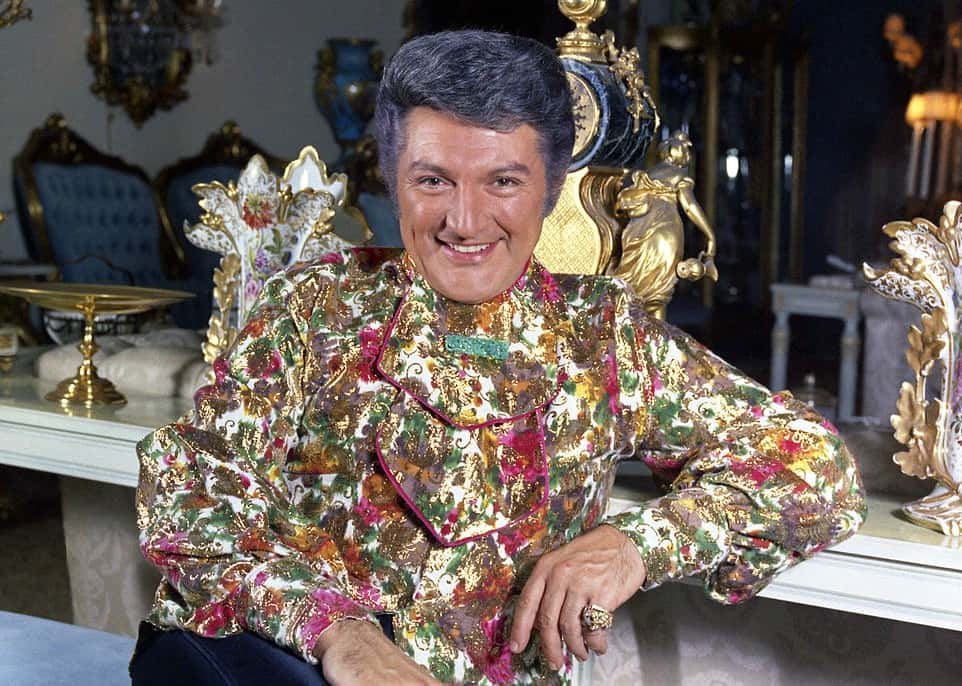 Wikimedia Commons, Allan warren
Wikimedia Commons, Allan warren
40. He Made Surprising Appearances
In 1985, Liberace became a guest timekeeper at WrestleMania. Other famous guests included Muhammed Ali and a dance group known as the Rockettes.
41. He Showed Off His Collection
Liberace created a museum to house his one-of-a-kind costumes, jewelry, artifacts, cars, and pianos. It opened in Nevada, Las Vegas in 1979 and at one point in time even rivaled the Hoover Dam as a tourist spot. This was when it was averaging almost 400,000 patrons in a year. One exhibit was dedicated to fan tributes and featured a Steinway made of 10,000 toothpicks! A fan after Liberace’s own heart, this one.
Proceeds from the museum went to the Liberace Foundation of Performing and Creative Arts, which provided scholarships for many talented, struggling young artists. The museum closed down in 2010. Currently, some of Liberace’s possessions are on display in the Liberace Garage, also in Vegas.
42. He Had Surprising Beliefs—Personal And Political
Liberace believed that his audience, which mainly consisted of women, would find it hard to accept his homosexuality at the time. His greatest achievement was making classical music accessible to these fans and he could not endanger his success by explicitly "coming out" to them. He was a devout Roman Catholic and a priest administered his last rites a day before he passed. He was conservative in politics and firmly believed in capitalism.
43. He Had Quite The Award Haul
A long and successful career shouldn’t be completely bereft of awards. Fortunately, Liberace’s wasn’t. Apart from two Emmy awards, Liberace had six gold albums and two stars on the Hollywood Walk of Fame.
44. He Got One Final Hurrah
His final stage performance was at New York’s Radio City Music Hall in November of 1986, and Liberace’s final television appearance was on The Oprah Winfrey Show on Christmas, the same year.
 The Oprah Winfrey Show, Harpo Productions
The Oprah Winfrey Show, Harpo Productions
45. He Had A Killer Outfit
Liberace’s penchant for extravagance once almost took his life. In 1963, he was onstage when "everything began going in circles" and he felt so terrible that he had to be rushed offstage. It turned out that he had cleaned his costume with carbon tetrachloride before the show. The chemical had leached onto his skin, and he had been breathing it all day in a room with no ventilation—but that’s not the craziest part.
After he collapsed, only the news of President Kennedy’s assassination was powerful enough to jerk him awake—and that’s not all. Although the doctors gave him a 20% survival chance, he still managed to bounce back to perfect health.
46. He Turned On Him
In 1982, Liberace was the victim of a cruel betrayal. His chauffeur-cum bodyguard, Scott Thorson, sued him for "palimony" in 1982. Thorson claimed he had been in a live-in relationship with Liberace for five years and demanded $113 million in court after he was "let go". Liberace continued to deny that he was gay and insisted that Thorson had never been his lover.
Eventually, the case was settled out of court in 1986. Thorson received $75,000 in cash, three cars, and three dogs worth another $20,000. He said that he had settled because he knew Liberace was close to dying. Sadly, he was correct. Liberace passed on a few months after the settlement—but that’s not all. Allegedly, the two had reached a reconciliation of sorts when Liberace was on his deathbed.
47. The One Who Betrayed Him Told His Story
Behind the Candelabra (2013) was an HBO original movie that was ostensibly about the pianist’s life—which itself was based on a book by the same name written by his chauffeur and reported lover, Scott Thorson. The film starred Michael Douglas and Matt. It received rave reviews for acting and direction and has a 95% rating on Rotten Tomatoes.
48. He Lived A Normal Life
Thorson claimed that Liberace was quite a boring person at home, where he liked playing with his dogs, cooking, and decorating. He was very conscious about his appearance: he had had two facelifts and would wear his toupee to bed because he didn’t like being bald. Ironically, he "dressed like a slouch" at home—but there’s a strange twist to it all. Allegedly, Liberace had also forced Thorson to have plastic surgery and told him that he wanted to adopt him…even though he was sleeping with him. Creepy!
49. They Had A Parting Of Ways
According to Thorson, the reason behind their breakup was utterly chilling. Thorson said that he was tired of Liberace’s obsession with racy videos and with his promiscuousness. The last straw came when he found Liberace in bed with an 18-year-old. Liberace on the other hand, while denying his relationship with Thorson, cited Thorson’s substance misuse problem and his "Jekyll and Hyde personality" as the reason he let him go.
 Behind the Candelabra (2013), HBO
Behind the Candelabra (2013), HBO
50. There Were No More Secrets
On February 4, 1987, Liberace passed on—and then, all his secrets came spilling out. Those close to the singer announced that it was "anemia, emphysema, and heart disease". However, soon after, authorities revealed the real cause: pneumonia as a result of AIDS. He had tested positive for HIV in 1985, around 18 months before he passed, but he kept it a secret and didn’t seek any treatment for it.
Liberace’s doctors and family tried to keep up the façade after his passing, but the County Coroner conducted an autopsy and discovered the real cause of death. They buried his body with the bodies of his mother and brother, in Hollywood Hills Cemetery in Los Angeles.
Sources: 1, 2, 3, 4, 5, 6, 7, 8, 9, 10, 11, 12, 13, 14, 15, 16, 17, 18

